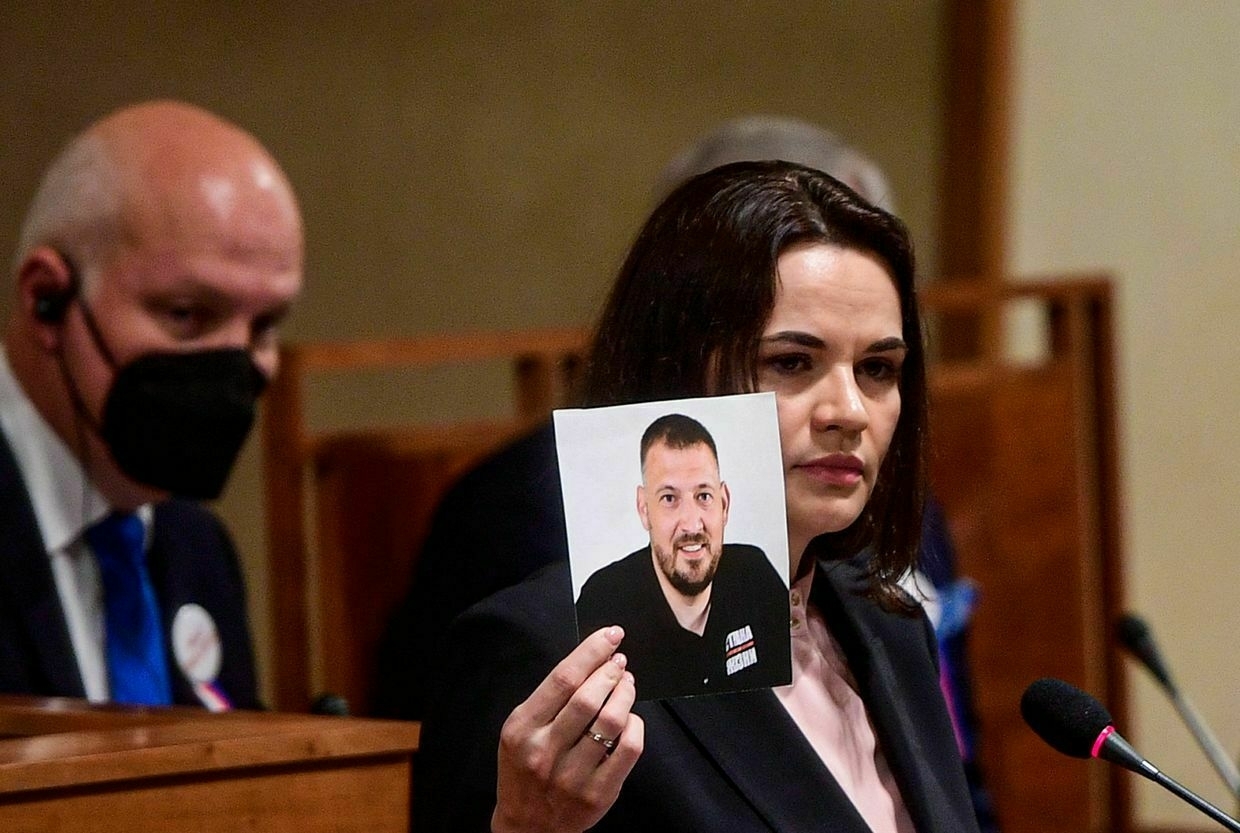-
Iran's top diplomat to meet Putin in Moscow after US air strikes on nuclear sites
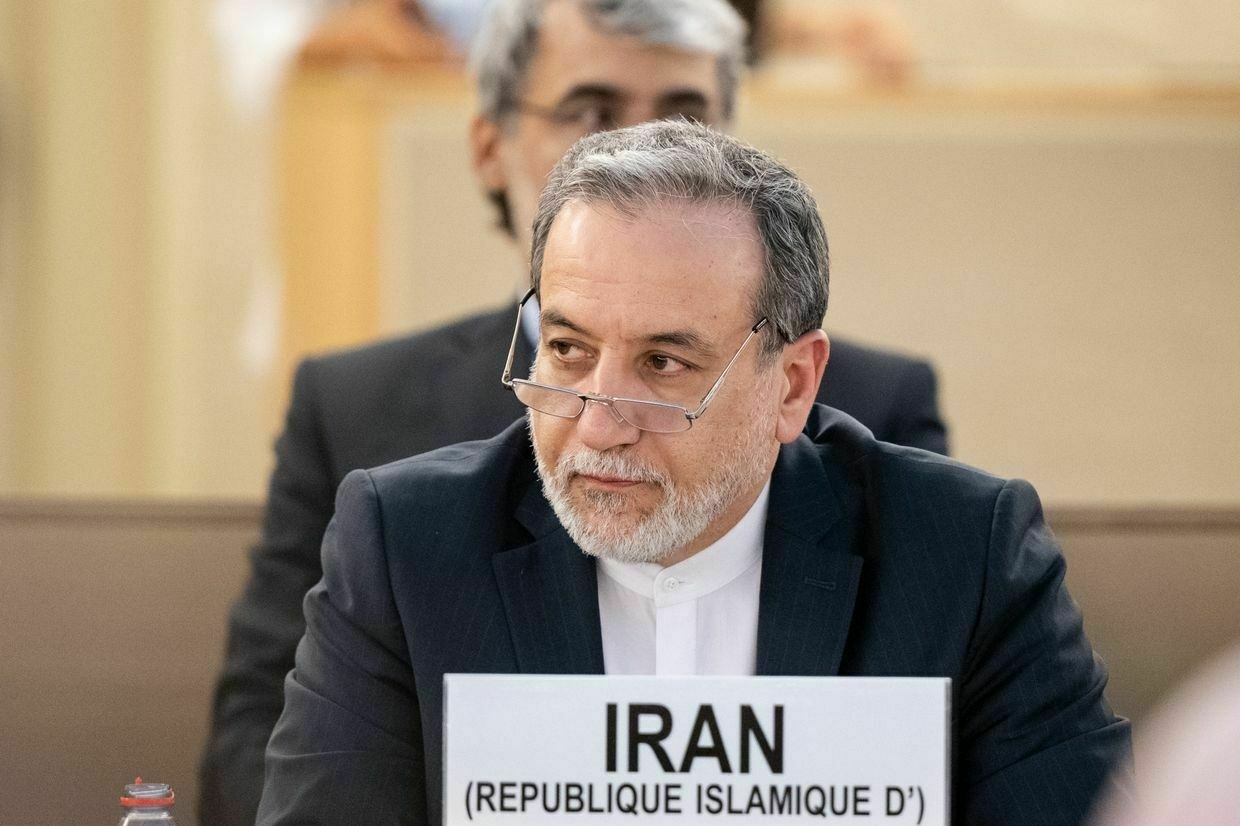
Iran’s Foreign Minister Abbas Araghchi confirmed that he plans to travel to Russia on June 22 to meet with Russian President Vladimir Putin following the recent U.S. strikes on Iranian nuclear facilities.
The statement was made during Araghchi’s press conference in Istanbul on June 22, according to Associated Press.
“We enjoy a strategic partnership and we always consult with each other and coordinate our positions,” Araghchi said with reference to Russia.
Araghchi also said that there is “no red line” that the U.S. has not crossed in its recent actions against Iran.
Earlier that day, Russia condemned the U.S. strikes against Iranian nuclear facilities, calling them a violation of international law and Iran’s sovereignty, a statement in stark contrast to Russia’s full-scale war against Ukraine.
The Russian Foreign Ministry urged a response from the U.N. Security Council, saying that “the confrontational actions of the U.S. and Israel must be collectively rejected."
Tehran provides Moscow with ballistic missiles and thousands of Shahed attack drones for its war against Ukraine as part of Russia and Iran’s close strategic partnership.
Russia and Iran have cooperated to develop their own nuclear programs as both countries face Western sanctions. Russia supplied Iran with the Middle East’s first nuclear power plant despite objections from the West.
Russia pulls its scientists out of Iranian nuclear plant, as Israeli strikes threaten decades of collaborationIsrael’s strikes on Iranian nuclear facilities have alarmed none more than Russia, the country that first brought nuclear power to Iran in defiance of Western objections. We’re “millimeters from catastrophe,” said Kremlin spokeswoman Maria Zakharova on June 18 in response to a bombing campaign that Israel launched againstThe Kyiv IndependentKollen Post
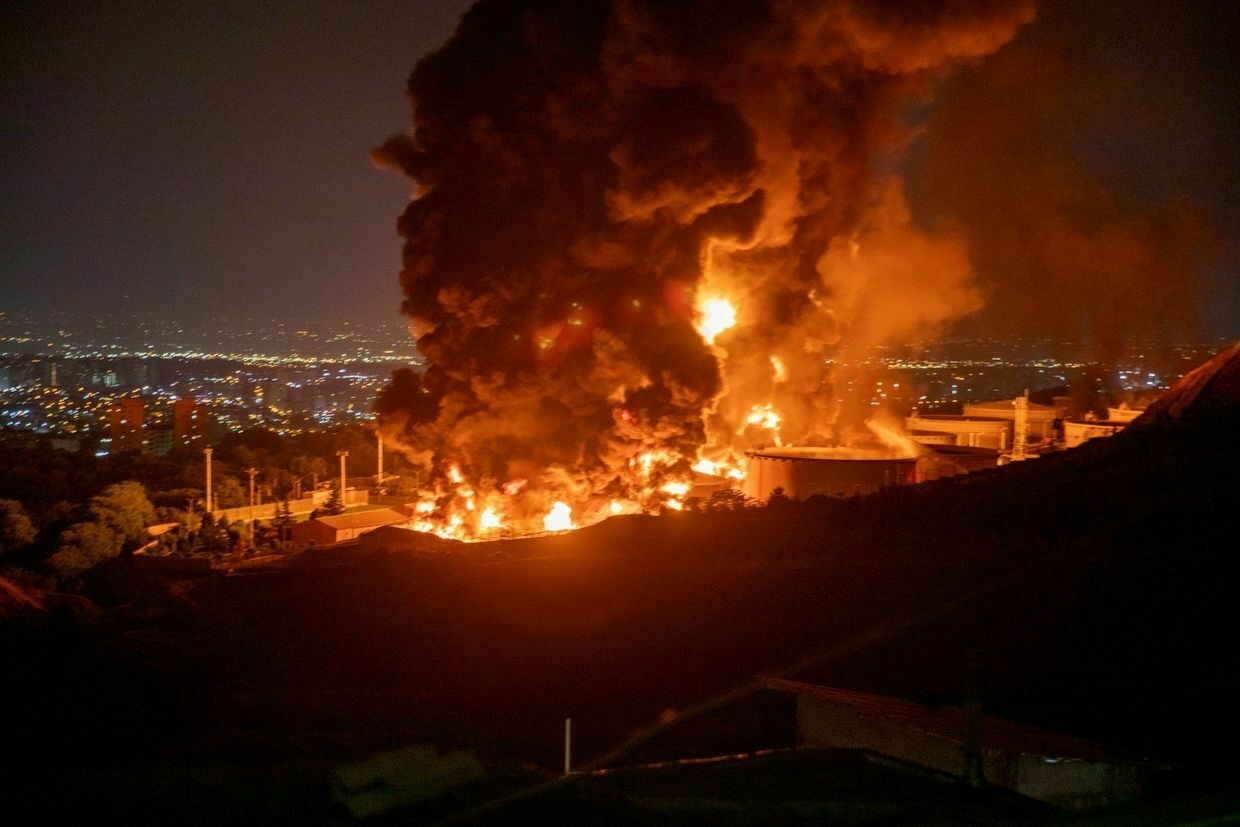
-
Trump could free all Belarus's political prisoners 'with a single word,' released oppositionist Tsikhanouski says
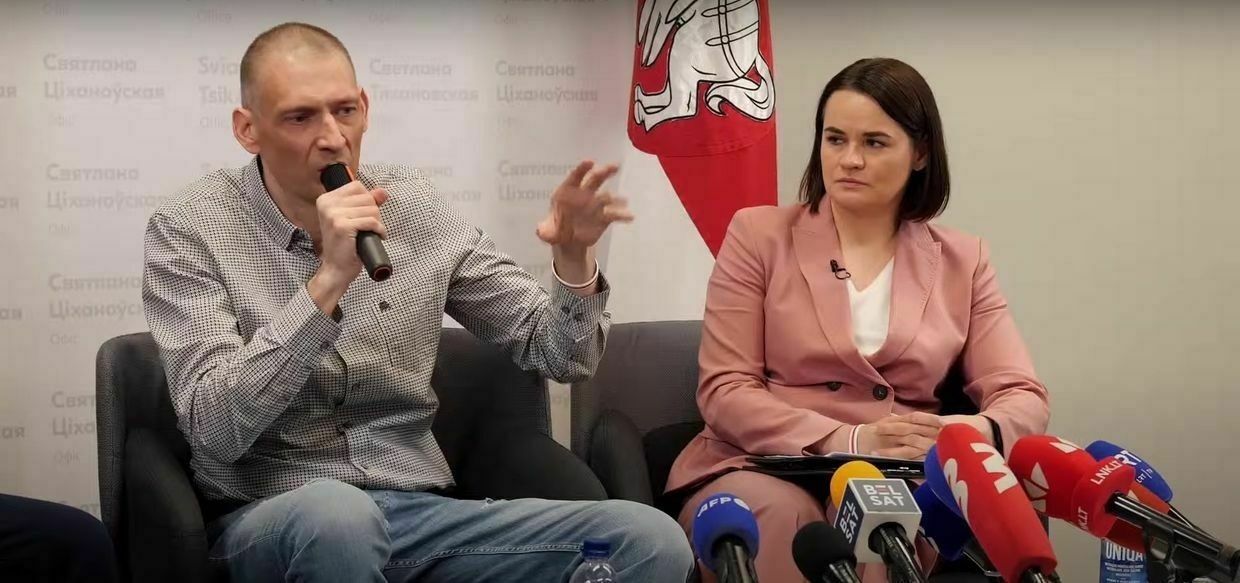
Siarhei Tsikhanouski, a Belarusian oppositionist recently released from prison, thanked the U.S. on June 22 for brokering his release and appealed to President Donald Trump to help free other political prisoners in Belarus.
“President Trump now has the power and opportunity to free all political prisoners in Belarus with a single word. And I ask him to do so, to say that word,” Tsikhanouski said in Vilnius during his first press conference after the release.
Tsikhanouski, a popular blogger who planned to challenge Belarusian dictator Alexander Lukashenko in the 2020 presidential election, was arrested shortly before the vote and later sentenced to 18 years in prison on politically motivated charges.
The opposition leader and at least 13 other detainees were released from Belarusian prisons on June 21 after Lukashenko met U.S. Special Envoy for Ukraine, Keith Kellogg, in Minsk.
Speaking at the press conference alongside his wife and opposition leader, Sviatlana Tsikhanouskaya, Tsikhanouski affirmed that both of them “will continue to support Ukraine and call all of the perpetrators accountable."
Tsikhanouski confirmed that he used to do business both in Ukraine and in Russia but refuted allegations of pro-Russian sympathies, affirming his support for Ukraine and President Volodymyr Zelensky.
“I believe Crimea is Ukrainian. Zelensky has the hardest fate and a heavy load that no other president has. Zelensky is my hero,” Tsikhanouski said.
He also said that Sviatlana Tsikhanouskaya remains the leader of the Belarusian opposition, and he will not challenge that.
Tsikhanouskaya stepped in as the opposition candidate in 2020 after her husband’s arrest, but was forced into exile after Lukashenko declared victory in what was broadly seen as massive election fraud.
“Do you think that anybody who serves in prison automatically becomes a leader? We have 1,200 such leaders,” Tsikhanouski added, referring to the number of political prisoners who remain in prison under Lukashenko’s regime.
“Belarus can’t be free until the Putin regime collapses. If it wasn’t for (Russian President Vladimir) Putin, we would not be sitting here; it would have been over (after the Belarus' popular protests against Lukashenko) in 2020-2021,” Tsikhanouski said.
Lukashenko, in power since 1994, is a close ally of Putin and has allowed Russia to use Belarusian territory for military operations against Ukraine.
The Belarusian dictator has maintained a tight grip over his country by electoral fraud, surveillance, and brutal crackdown on free press, civil society, and political opposition, prompting Western countries to impose sanctions on Belarus.
Russia ‘afraid to admit’ scale of losses, trying to hide by dumping soldiers’ bodies on Ukraine, Zelensky saysUkrainian authorities have confirmed that at least 20 of the bodies Russia returned as Ukrainian were actually Russian soldiers, President Volodymyr Zelensky said.The Kyiv IndependentTim Zadorozhnyy
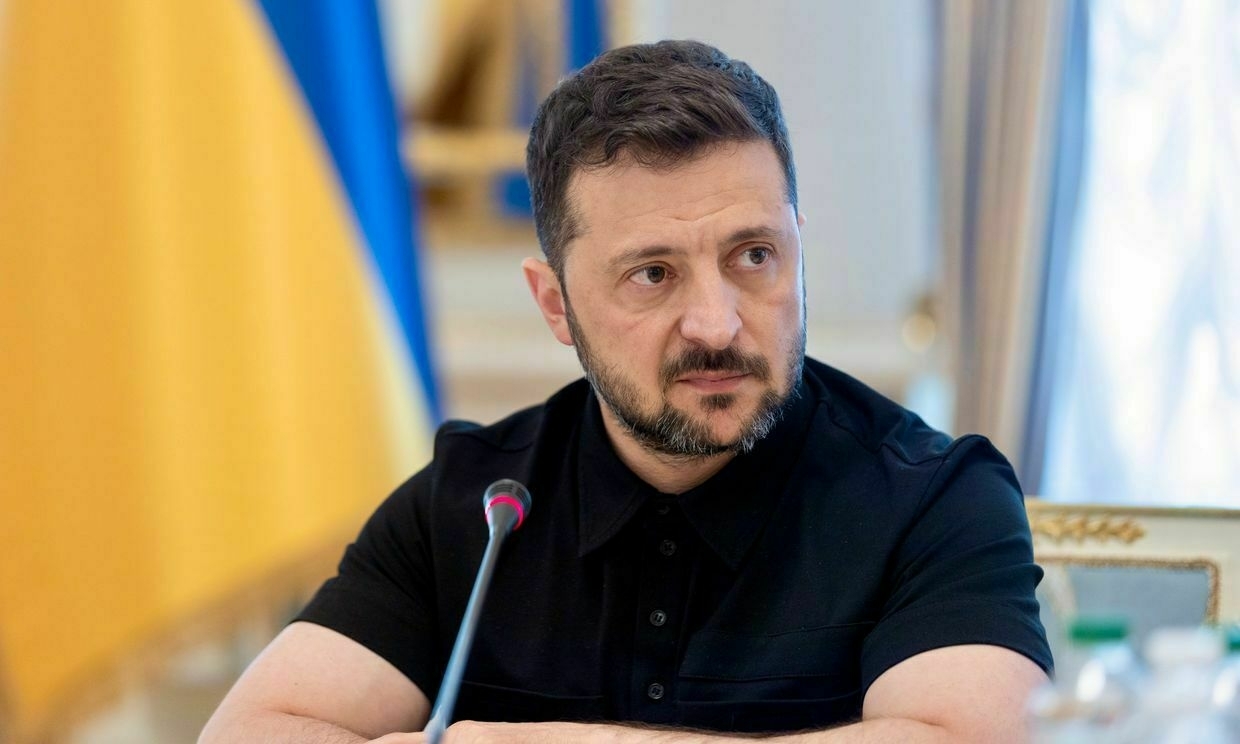
-
Zelensky slaps new sanctions over business activities in Russian-occupied territories of Ukraine
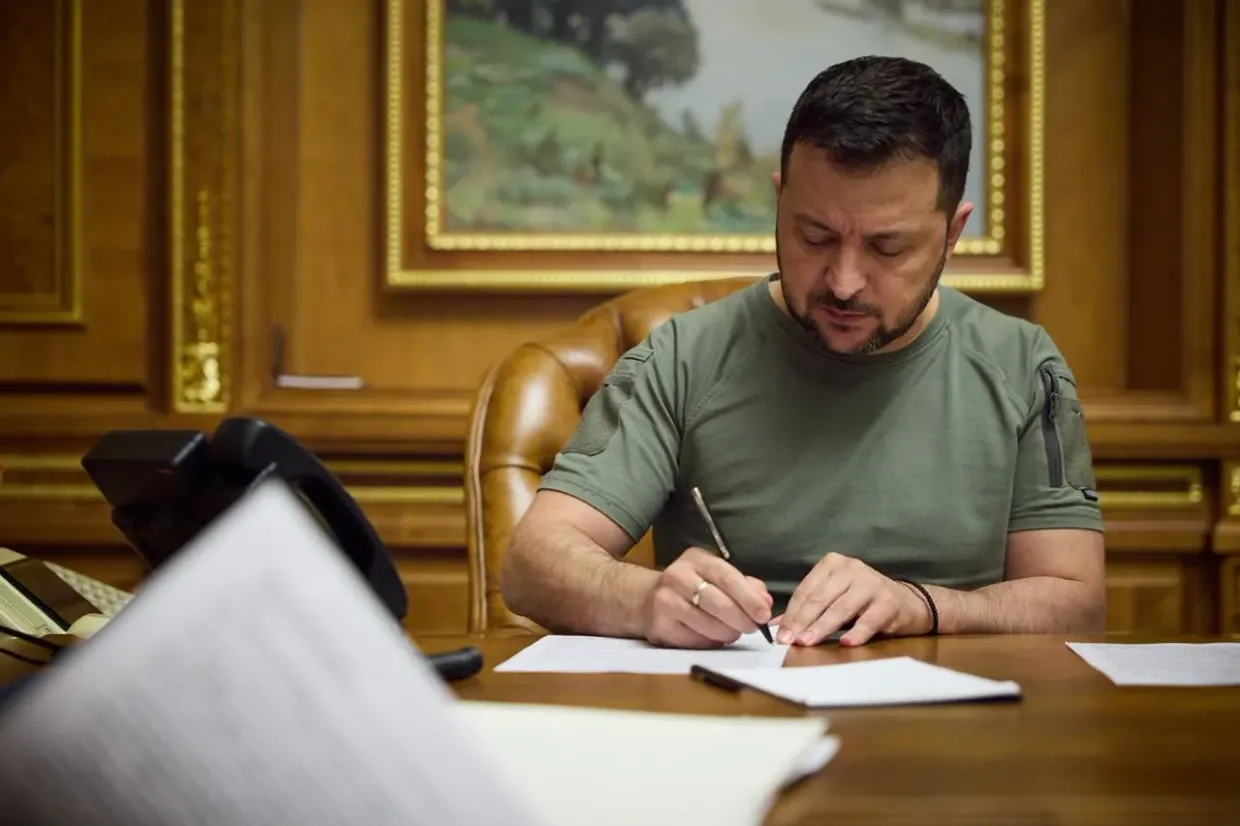
President Volodymyr Zelensky signed an order on June 22 to impose sanctions on individuals and legal entities doing business in the Russian-occupied territories of Ukraine, including Crimea.
According to Zelensky, the sanctions are targeting “those who cooperate with the (Russian) occupier on our land,” as they “help justify the aggression, consider it normal to make money in the occupation, and pay taxes” to Russia.
The order, which follows a decision of Ukraine’s National Security and Defense Council, was published on the Presidential Office’s website together with the lists of sanctioned individuals and companies.
The order is only the beginning of a larger plan for sanctions against such individuals, with more steps coming soon, Zelensky wrote.
According to Zelensky, Ukrainian authorities are also working to fully synchronize Ukrainian sanctions with the steps by foreign partners.
“Justice must prevail in all jurisdictions and truly restrict all those who choose Russia and war,” he added.
The lists of sanctioned individuals and companies published on the Presidential Office’s website did not clarify the nature of their business activities or collaboration with the Russian occupation authorities and state.
The list includes lawmaker Artem Dmytriuk, who fled Ukraine in August 2024 and is suspected of assaulting a police officer and a military service member.
Fugitive ex-lawmaker Oleksandr Onyshchenko, who was sentenced in absentia to 15 years in prison for large-scale fraud in the gas sector between 2013 and 2016, is also among the newly sanctioned individuals.
Arricano Real Estate PLC, which owns several large shopping malls in Kyiv and other Ukrainian cities, was also sanctioned together with its former majority auctioneer, Estonian businessman Hillar Teder. Until 2024, Arricano’s shareholders included Dragon Capital, Ukraine’s largest investment company owned by Czech businessman Tomas Fiala.
Ukrainian laws on collaboration had long raised discussions among members of the public, academics, and practitioners.
According to an article from 2024 by the Zmina Human Rights Center, Ukraine’s law recognizes doing business in occupied territories as a crime of collaboration. Human rights defenders have conducted research that has highlighted the law’s flaws and problems with its application.
A 2023 report by the Ukrainian Helsinki Human Rights Union said that enacting legal consequences for collaboration according to the law could breach the International Human Rights Conventions in some cases.
“The law does not take into account cases when a person conducts economic activities to cover the basic needs of his or her family or when such activities support the livelihood of the population under occupation,” the Zmina Human Rights Center wrote.
Russia ‘afraid to admit’ scale of losses, trying to hide by dumping soldiers’ bodies on Ukraine, Zelensky saysUkrainian authorities have confirmed that at least 20 of the bodies Russia returned as Ukrainian were actually Russian soldiers, President Volodymyr Zelensky said.The Kyiv IndependentTim Zadorozhnyy
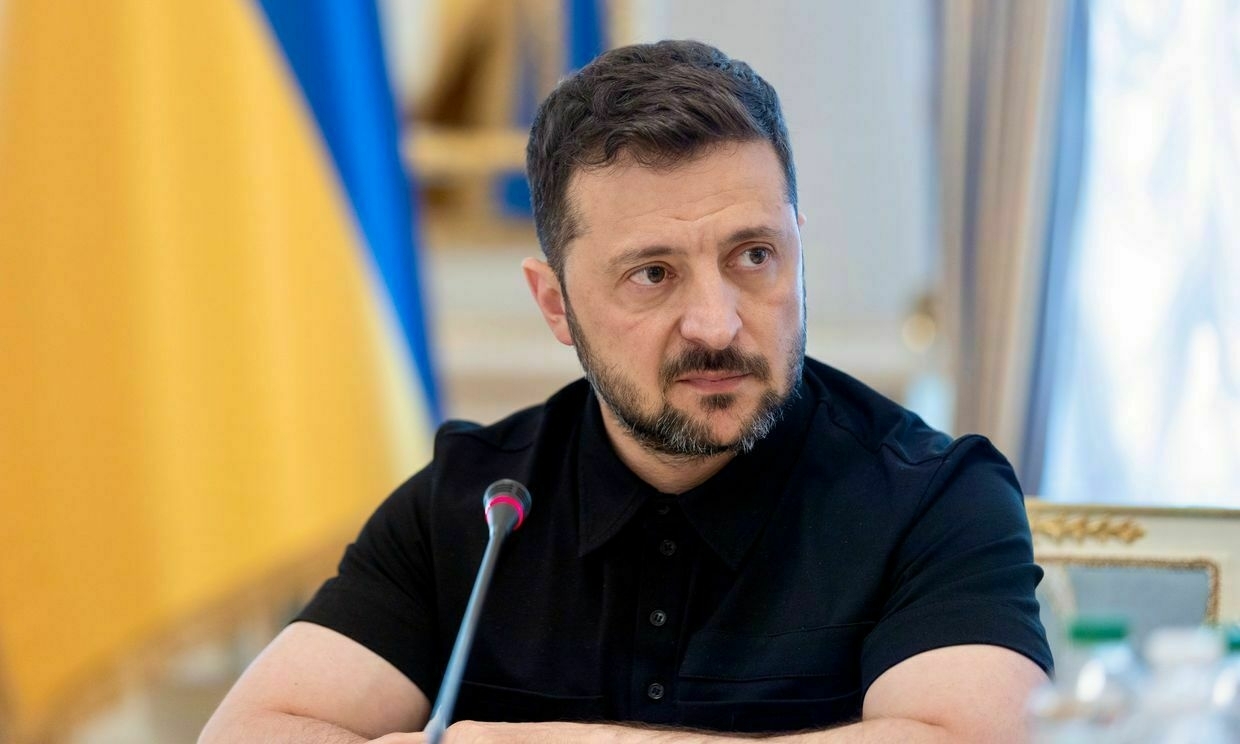
-
Ukraine evacuates 176 citizens, foreigners from Israel ahead of US strikes on Iran, Zelensky says
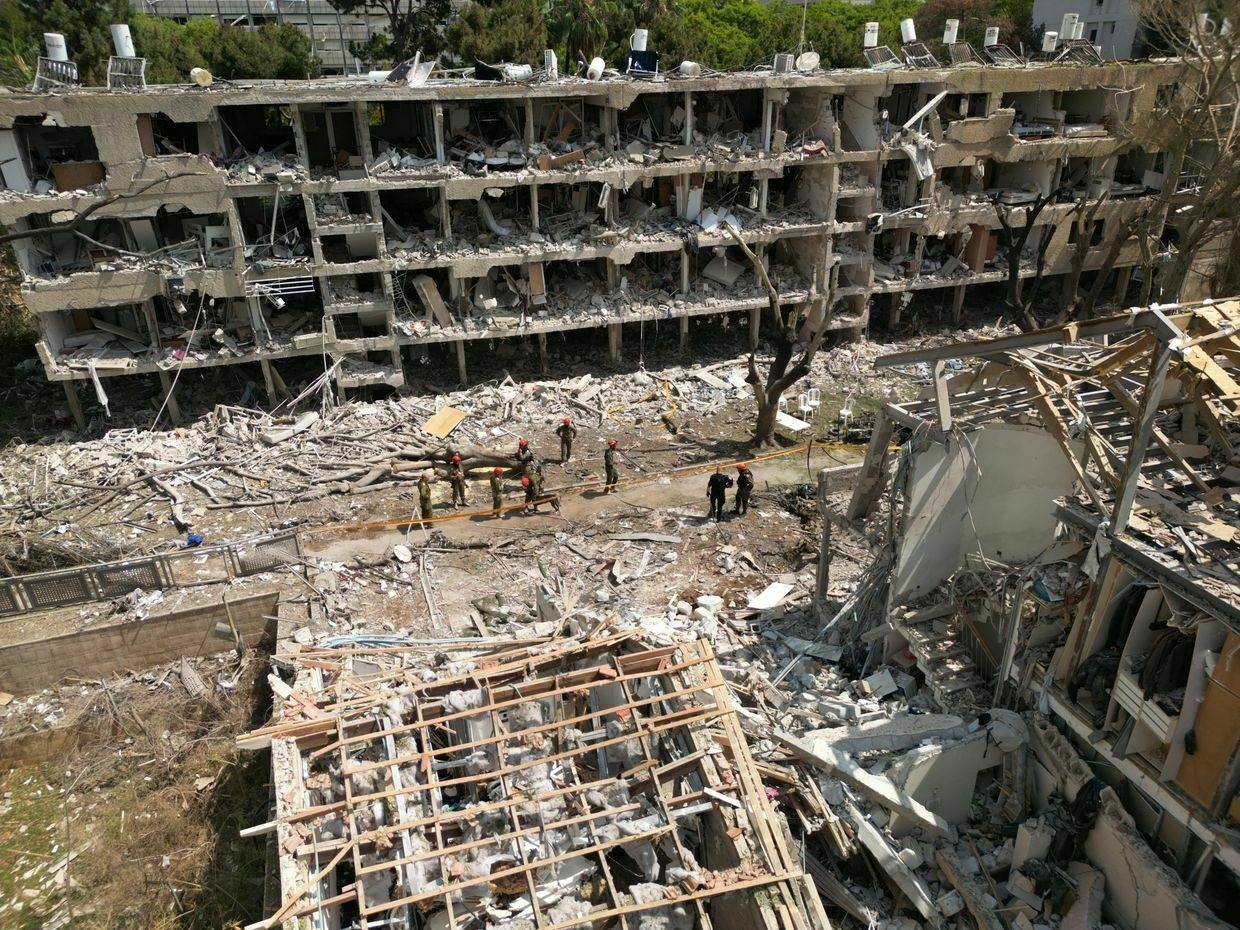
Ukraine’s diplomatic corps and military intelligence (HUR) evacuated 176 Ukrainian and foreign citizens from Israel to Egypt ahead of U.S. attacks on Iran, President Volodymyr Zelensky announced on June 22.
“Evacuation efforts are also ongoing from Iran to Azerbaijan,” Zelensky said on X after the U.S. launched air strikes against three Iranian nuclear facilities, joining Israel’s campaign against Iran’s nuclear program.
The foreign nationals evacuated by Ukraine included citizens of the U.S., Moldova, Latvia, Azerbaijan, and Estonia.
“We are responding to every request and will continue evacuation efforts,” Zelensky added.
The latest chapter of hostilities between Iran and Israel began with Israeli air strikes against the Iranian nuclear program and military leaders on June 13. Israel has accused Iran of developing a nuclear weapon, a claim that Tehran denied.
U.S. President Donald Trump reportedly hopes that the U.S. attacks will push the Iranian leadership to the negotiating table, as the conflict was preceded by Trump’s efforts to find a diplomatic solution to Tehran’s nuclear aspirations.
Ukraine’s Foreign Ministry announced already on June 18 that evacuations of Ukrainian citizens from Iran and Israel are being prepared.
According to the Iranian Health Ministry, over 400 Iranians have been killed and over 3,000 wounded in Israeli attacks. In turn, at least 29 Israeli citizens have been killed and 900 injured in Iranian attacks.
Russia pulls its scientists out of Iranian nuclear plant, as Israeli strikes threaten decades of collaborationIsrael’s strikes on Iranian nuclear facilities have alarmed none more than Russia, the country that first brought nuclear power to Iran in defiance of Western objections. We’re “millimeters from catastrophe,” said Kremlin spokeswoman Maria Zakharova on June 18 in response to a bombing campaign that Israel launched againstThe Kyiv IndependentKollen Post
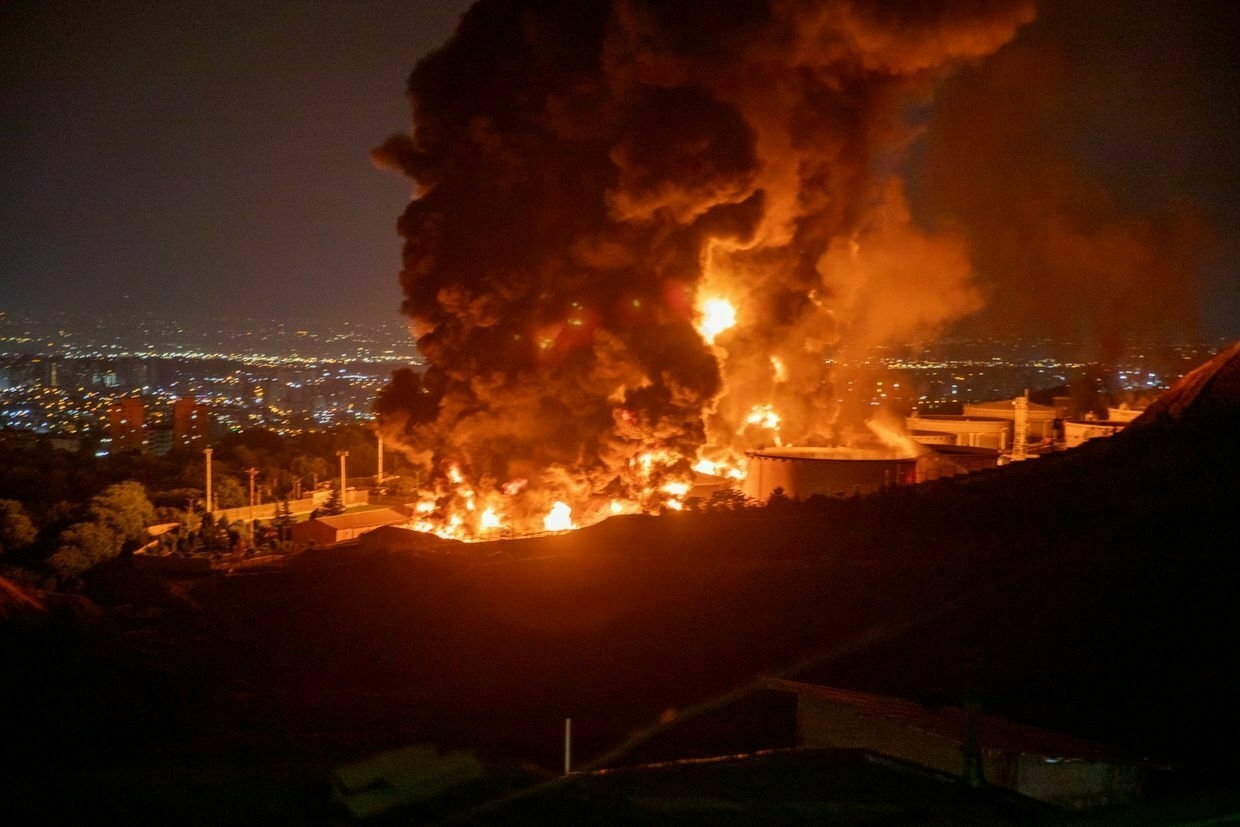
-
Over 450 draft officers, staff transferred in response to reported abuses, Ukraine's military chief says
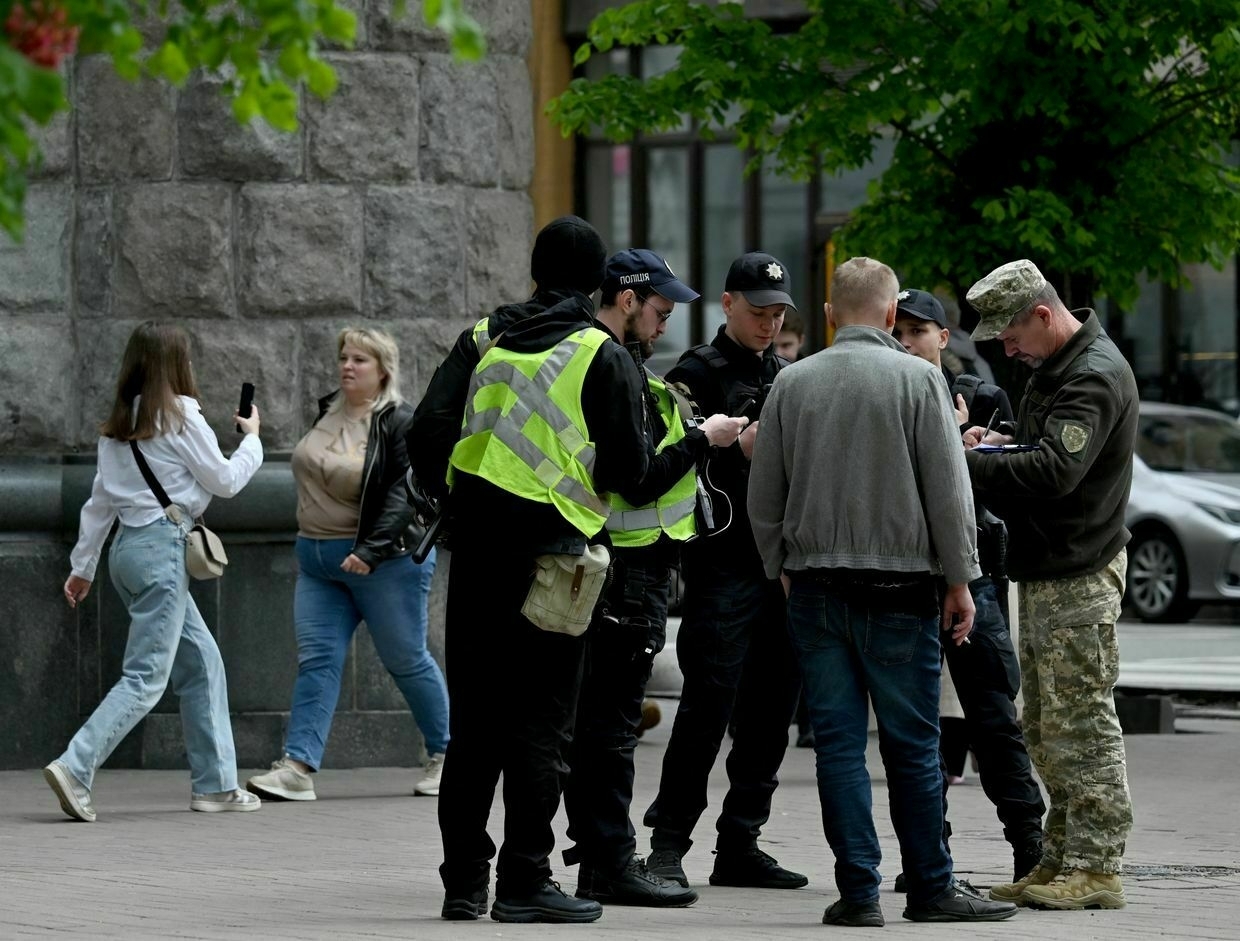
The Ukrainian military leadership aims to overhaul the draft office system amid numerous reports of abuses since the start of Russia’s invasion in 2022, Commander-in-Chief Oleksandr Syrskyi told journalists on June 21.
To “clean up the system”, 136 officers and 325 other service members from the draft offices involved in misconduct were transferred to other positions in the army, Syrskyi said at a briefing attended by the Kyiv Independent.
Mobilization of men through the draft offices remains the main source of manpower for the Ukrainian army which defends against Russia’s much more numerous forces in a war of attrition, Syrskyi added.
Draft offices are often accused, at times justly, of forced conscription without compliance with fundamental civil rights and ill-treatment of conscripts in recruitment centers. These reports are used by Russian propaganda to help escalate social tensions in Ukraine and further damage Ukraine’s recruitment efforts.
“Cases of forced detention of citizens (by the draft officers) are absolutely unacceptable,” Syrskyi said during the briefing.
Ukrainian leadership expects the newly appointed commander of Ukraine’s Ground Forces, Brigadier General Hennadii Shapovalov, to “overcome problematic issues,” Syrskyi added.
Shapovalov’s appointment on June 17 followed the resignation of Mykhailo Drapatyi earlier this month after a Russian missile strike killed at least 12 Ukrainian soldiers at a training ground in Dnipropetrovsk Oblast.
Inspections are underway in the draft centers to send draft officers without battlefield experience to the front, replacing them with soldiers wounded in battles, Syrskyi said.
Draft offices should fulfill their duties and “disallow these shameful cases that sometimes occur,” according to Syrskyi.
“Corrupt officials and violators of the law in the mobilization process must be exposed. All necessary measures should be taken against such violators,” Syrskyi added.
Ukraine is failing the mobilization testUkrainian society largely does not want to mobilize. Nearly 6 million Ukrainian men have not updated their information in military enlistment centers, and most of them likely don’t have grounds for a deferment or exemption. Forced mobilization of these men is categorically opposed by society. Rosy-cheeked aunts gather and shoutThe Kyiv IndependentIllia Krotenko

-
Amid its war against Ukraine, Russia condemns US strikes on Iran as 'violating international law'
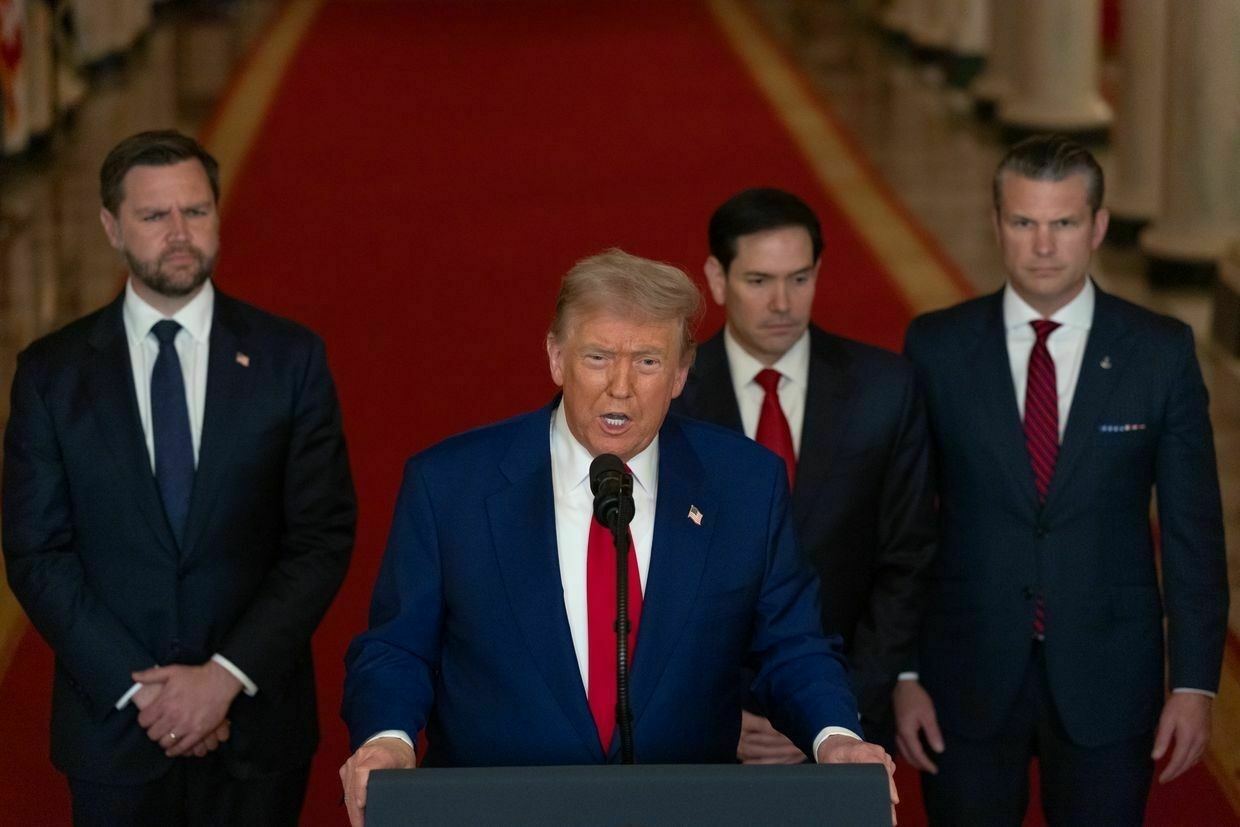
Moscow condemned on June 22 the recent U.S. strikes against Iranian nuclear facilities, calling them a violation of international law and Iran’s sovereignty, a statement in stark contrast to Russia’s full-scale war against Ukraine.
U.S. President Donald Trump announced on June 21 that the U.S. air strikes targeted three nuclear sites in Iran, namely Fordow, Natanz, and Esfahan, joining Israel’s campaign against Iran’s nuclear program amid an escalating conflict.
“The irresponsible decision to subject the territory of a sovereign state to missile and bomb strikes, no matter what arguments are used, is grossly violating international law, the U.N. Charter, and the resolutions of the U.N. Security Council,” the Russian Foreign Ministry said in a statement.
The ministry also warned of possible radiological consequences, despite Moscow’s own record of repeatedly placing nuclear facilities at risk during its full-scale invasion of Ukraine and threatening to use nuclear weapons.
Russia and Iran are close strategic partners, with Tehran providing Moscow with ballistic missiles and thousands of Shahed attack drones for its war against Ukraine.
Moscow has diplomatically backed Iran after Israel launched the initial air strikes against Iranian military and nuclear targets on June 13, an operation that led to further waves of aerial attacks from both sides.
In its statement, the Russian Foreign Ministry urged a response from the U.N. Security Council, saying that “the confrontational actions of the U.S. and Israel must be collectively rejected."
“Of particular concern is the damage caused by the attacks on Iranian nuclear facilities to the global non-proliferation regime based on the Treaty on the Non-Proliferation of Nuclear Weapons (NPT)."
Israel has increasingly warned that Iran is developing a nuclear weapon, an assertion backed by Trump despite U.S. intelligence previously disputing the claim. Tehran has rejected having a nuclear weapons program.
Though Trump announced a complete “obliteration” of Iran’s nuclear enrichment facilities in the recent attacks, the scale of damage is not immediately clear. The International Atomic Energy Agency (IAEA) said it had detected no increase in radiation at the targeted sites, while the Iranian state media and officials sought to downplay the damage.
Iran has called for an emergency meeting of the U.N. Security Council in the wake of the attacks. Both the U.S. and Russia hold a permanent seat and a veto power in the council.
Israeli Prime Minister Benjamin Netanyahu praised Trump for the operation, saying, “First comes strength, then comes peace. And tonight, (President Donald) Trump and the United States acted with a lot of strength.
In turn, Iran’s Foreign Minister Abbas Araqchi said that the U.S. “has committed a grave violation of the U.N. Charter, international law and the NPT by attacking Iran’s peaceful nuclear installations."
Washington’s European partners have issued cautious responses to the U.S. attacks, calling for a diplomatic resolution.
“Iran must not be allowed to develop a nuclear weapon, as it would be a threat to international security,” top EU diplomat Kaja Kallas said on X.
“I urge all sides to step back, return to the negotiating table, and prevent further escalation."
Russia pulls its scientists out of Iranian nuclear plant, as Israeli strikes threaten decades of collaborationIsrael’s strikes on Iranian nuclear facilities have alarmed none more than Russia, the country that first brought nuclear power to Iran in defiance of Western objections. We’re “millimeters from catastrophe,” said Kremlin spokeswoman Maria Zakharova on June 18 in response to a bombing campaign that Israel launched againstThe Kyiv IndependentKollen Post
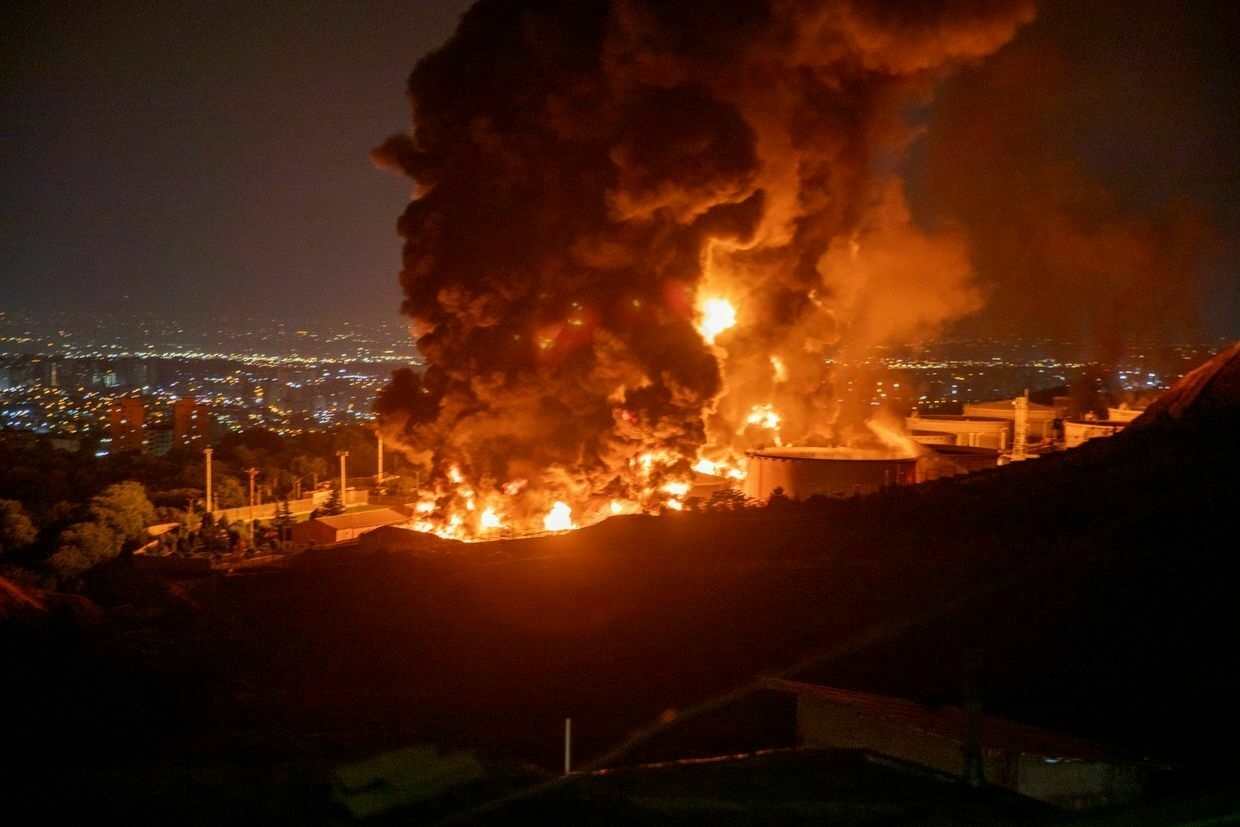
-
Ukraine destroys 80% of Russian drones despite air defense missile shortage, Syrskyi says
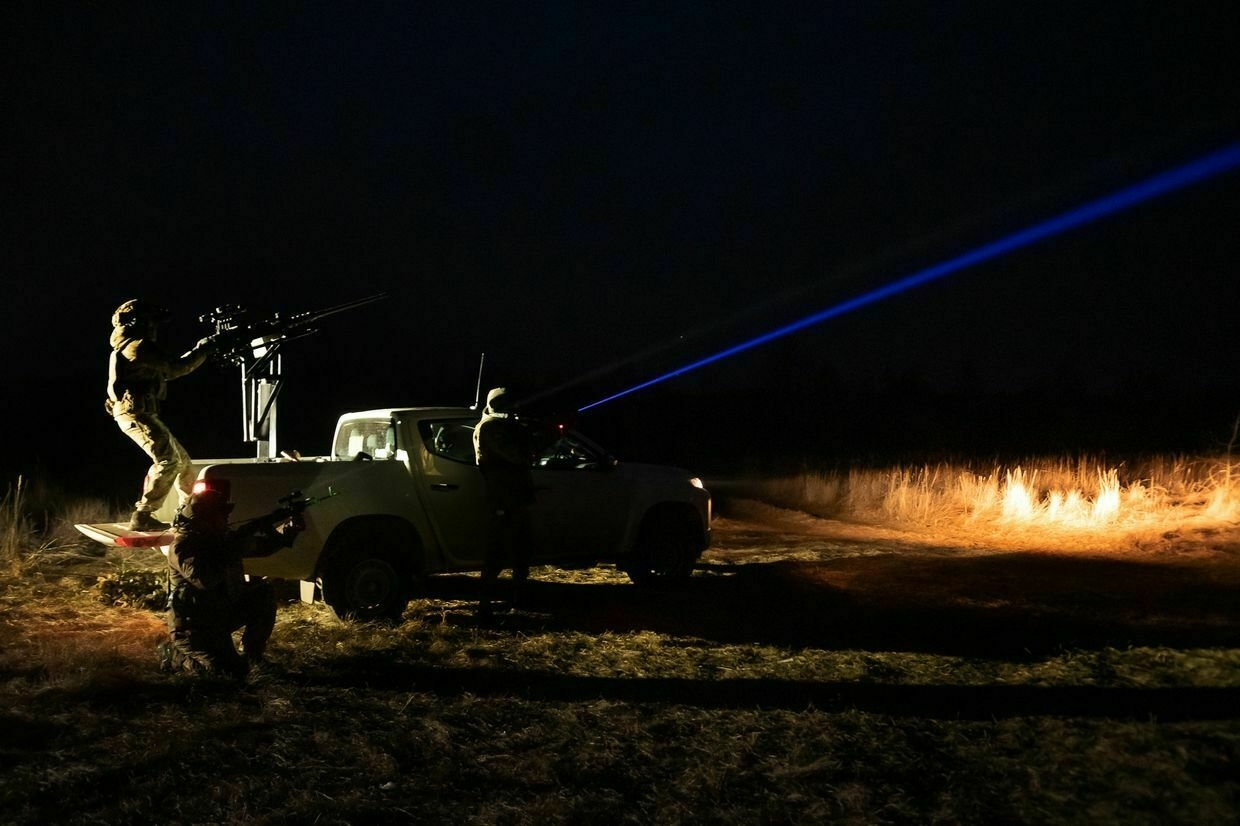
Ukraine is downing approximately 82% of Russian Shahed-type drones during Russian massive aerial attacks on Ukrainian cities despite a serious shortage of surface-to-air missiles, Commander-in-Chief Oleksandr Syrskyi told journalists on June 21.
Ukraine needs to have many times more surface-to-air missiles and anti-aircraft missile systems to ensure reliable defense of cities and critical infrastructure facilities, Syrskyi said at a briefing attended by the Kyiv Independent.
Russian attacks against Ukraine have surged in May and June as Moscow has launched several record-breaking mass strikes against Kyiv and other cities. The latest attack on June 17, primarily targeting the capital, killed 30 people and injured over 170.
“Since we have to save anti-aircraft guided missiles, mobile fire groups are the priority for defending from the Shaheds,” Syrskyi said.
Despite Russia’s changing tactics of massive air attacks, mobile fire groups account for the largest share of destroyed drones. The fire groups' effectiveness is up to 40%, according to Syrskyi.
Aviation is used almost every night to repel Russian air attacks, featuring the Defense Forces' helicopter crews and fighter aircraft of the Air Force, which includes U.S.-made F-16 and French Mirage-2000 aircraft.
“One promising area in countering Shaheds is the use of light aircraft,” Syrskyi said, adding that “there are new projects thanks to financial and material assistance from our foreign partners."
“We are receiving modern light aircraft, which have modern weapons and navigation, which will increase the effectiveness in countering Russian strike drones."
Syrskyi stressed that “cooperation with partners, primarily Canadian ones, enables us to obtain modern surveillance and targeting systems that enhance the combat capabilities of our helicopters."
Regular Air Force reports show that the majority of Russian drones are intercepted during overnight attacks, some by air defenses and others by electronic warfare systems. However, these reports do not always clarify how many of the intercepted drones were actual attack drones and which were only decoys launched to overwhelm air defenses.
Ukraine works to develop other means of protection against Russian air raids in the non-front-line oblasts as it scales up the use of interceptor drones.
Syrskyi said that over five types of interceptor drones have been cleared for use in the army, and new units are being formed and taught to operate them. Some of these Air Force units have already downed dozens of Russian Shaheds, according to Syrskyi.
The effective use of interceptor drones is hindered by the lack of tactical radar systems in Ukraine, such as Israel-made radars by RADA Electronic Industries and their analogues.
Syrskyi said the Ukrainian army needs hundreds of tactical radar systems instead of the few currently in service for radar reconnaissance, which is key to the use of interceptor drones.
Russia pulls its scientists out of Iranian nuclear plant, as Israeli strikes threaten decades of collaborationIsrael’s strikes on Iranian nuclear facilities have alarmed none more than Russia, the country that first brought nuclear power to Iran in defiance of Western objections. We’re “millimeters from catastrophe,” said Kremlin spokeswoman Maria Zakharova on June 18 in response to a bombing campaign that Israel launched againstThe Kyiv IndependentKollen Post
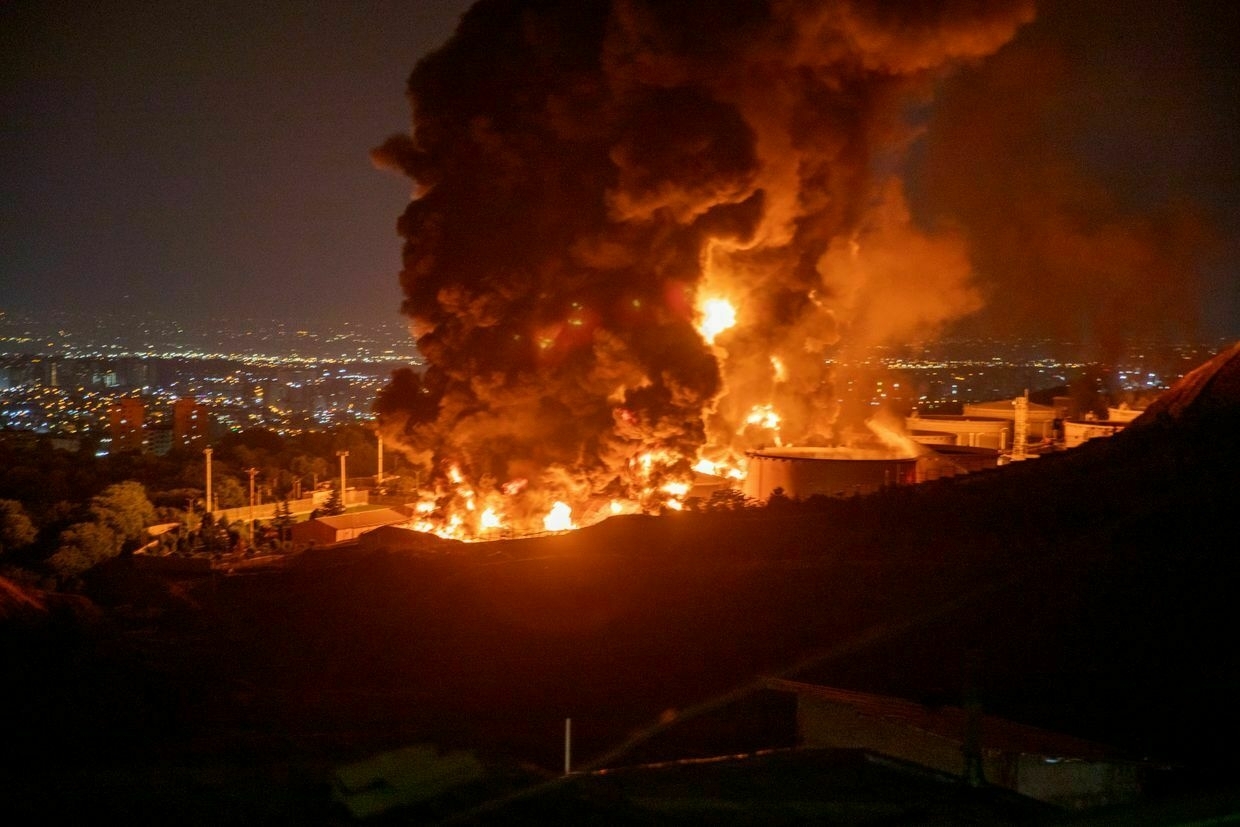
-
Former Ukrainian POW dies month after being released from Russian captivity

Serhii Dobrovolskyi, a Ukrainian soldier who had been in Russian captivity since 2023, has died just a month after his release at the end of May as part of a 1000-for-1000 prisoner swap, an official from the soldier’s home region announced on June 21.
The case is the latest in a chain of Ukrainian soldiers' unexpected deaths after their return from Russian captivity, highlighting the effects of “widespread and systematic” torture of prisoners of war (POWs) in Russian prisons, reported by the U.N.
“Serhii Dobrovolskyi was released from captivity at the end of May this year. A few days ago, he was met by his fellow townspeople in his hometown,” wrote the head of the soldier’s native Zdolbuniv district in Rivne Oblast, Vladyslav Sukhliak, on Facebook. The exact cause of death was not immediately announced.
A video posted by the Zdolbuniv city council on June 17 shows Dobrovolskyi being greeted in Zdolbuniv by a crowd chanting the Ukrainian anthem as the soldier is hugging his mother. He was also presented with a korovai, a round bread loaf, as part of the symbolic Ukrainian tradition of welcome with bread and salt.
“Finally, after almost two years, the mother hugged her son,” the Zdolbuniv city council commented on the video.
Sukhliak added that Dobrovolskyi was 43 years old at the time of death. “The war with the damned (Russian) occupiers takes lives and health of the defenders,” he wrote.
Earlier in June, another Ukrainian soldier returned from Russian captivity had died unexpectedly.
Dmytro Shapovalov, a 32-year-old defender of Ukraine who was exchanged in 2023 after over a year in Russian prisons, had died on June 9, according to the Ukrainian public broadcaster Suspilne.
His sister Anastasiia said that Shapovalov endured torture, hunger, and psychological pressure in captivity. After his release, Shapovalov returned to military service. He died in his sleep, presumably from heart failure, Suspilne reports.
After his death, a representative of the Coordination Headquarters managing the prisoner swaps, Yuliia Pavliuk, published a video showing Shapovalov eating an apple on the day of his release.
“I had just been dreaming about an apple for a year,” Shapovalov says in the video.
In 2023, a high-ranking officer from the “Azov” brigade, Oleh Mudrak, died at 35 years old, months after his release from Russian captivity. As a POW, he survived the Olenivka camp explosion and endured a dramatic weight loss in just 100 days, as seen in the photos published by Stanislav Aseyev, a Ukrainian writer and activist.
Treatment of “Azov” fighters in Russian prisons is notoriously brutal due to their nationalistic values and Russian propaganda that worked for years to smear the unit’s reputation both in Russia and internationally.
Some Azov fighters died from torture in Russian captivity or were sentenced to decades in prison for alleged war crimes. Many of them were among the 54 Ukrainian prisoners killed in an explosion in Olenivka penal colony in the Russian-occupied part of Donetsk Oblast on July 28, 2022.
Ukraine accused Russia of orchestrating the explosion, while Russia has been systematically preventing international organizations from conducting an independent investigation on the site of the attack.
The U.N. reported widespread torture of Ukrainian POWs in Russia and brutal conditions of their detention over the past years.
Russia ‘afraid to admit’ scale of losses, trying to hide by dumping soldiers’ bodies on Ukraine, Zelensky saysUkrainian authorities have confirmed that at least 20 of the bodies Russia returned as Ukrainian were actually Russian soldiers, President Volodymyr Zelensky said.The Kyiv IndependentTim Zadorozhnyy
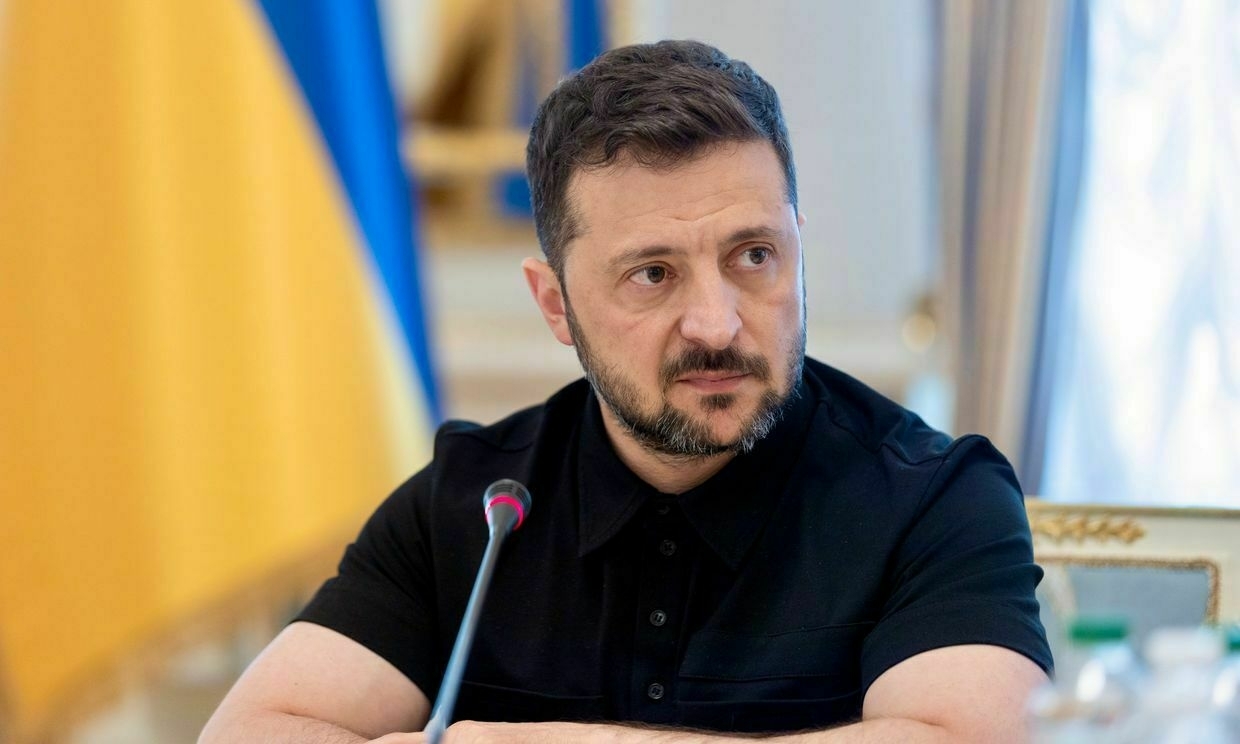
-
Russia seeks to advance along almost entire front in Ukraine's east, Syrskyi says
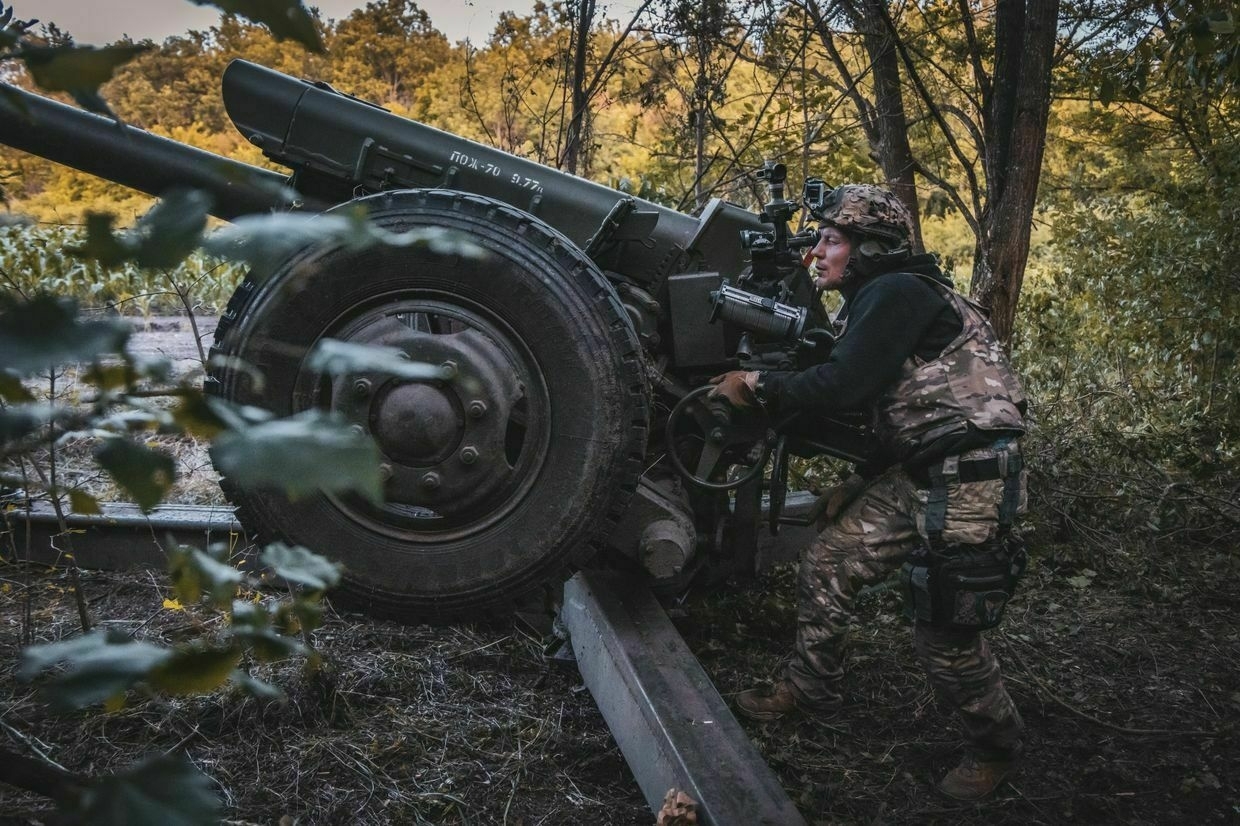
Russian forces are attempting to advance along almost the entire front in eastern Ukraine while trying to establish a buffer zone in northeastern Sumy Oblast, Commander-in-Chief Oleksandr Syrskyi told journalists on June 21.
The comments come as Moscow launched a new summer offensive against Ukraine, disregarding calls by Kyiv and its Western partners for an unconditional ceasefire.
The offensive’s goal is to reach the administrative borders of Donetsk and Luhansk oblasts in the east, and create a buffer zone in the border areas of the Sumy and Kharkiv oblasts, Syrskyi said at a meeting attended by the Kyiv Independent.
As of mid-June, Ukrainian defenders are fighting close to 695,000 Russian troops in Ukraine across a 1,200-kilometer (750-mile) front, the commander said, adding that Moscow recruited about 440,000 contract soldiers this year.
According to the open-source intelligence group DeepState, Russian forces occupied approximately 449 square kilometers (173 square miles) in May, the highest monthly figure this year.
Ukraine has managed to stop the Russian advance in Sumy Oblast at the moment, Syrskyi noted. “The situation there has been stabilized… we have recaptured Andriivka, and advanced between 200 and 700 meters in Yunakivka in a week,” he said.
Russian forces are also attempting to fully oust Ukrainian troops from Russia’s home territory in the Kursk and Belgorod oblasts.
“We control about 90 square kilometers (35 square miles) in the Glushkovsky district of Russia’s Kursk Oblast,” Syrskyi said.
Ukraine launched the cross-border offensive into Kursk Oblast — bordering Ukraine’s Sumy Oblast — last August, initially seizing 1,300 square kilometers (500 square miles) but losing the vast majority of this territory in a Russian counteroffensive earlier this year.
Moscow initially declared to have fully liberated the region on April 26, but this claim was rejected by Ukraine and later disputed by Russian officials themselves.
Kyiv has said the incursion was meant to preempt a Russian offensive into Sumy Oblast and force Russia to commit troops fighting in Donetsk Oblast.
Syrskyi stressed that at one point, the Kursk operation drew in almost 63,000 Russian soldiers, which, in addition to North Korean soldiers, amounted to about 70,000 troops deployed in the region.
“In April 2025, Russian units – and this, I remind you once again, is about 60 thousand people… were tasked with moving to new sectors and reinforcing Russian assault groups in the Pokrovsk, Toretsk, Lyman, Zaporizhzhia, and Kherson directions,” Syrskyi said.
“But our actions in the Glushkovsky district of Russia’s Kursk Oblast thwarted these plans.” At the moment, about 10,000 Russian soldiers are fighting in the Glushkovsky district, the commander added.
Syrskyi also said Russian assault units approached the administrative border of Dnipropetrovsk Oblast but were thrown back.
“As for our plans and intentions. Of course, we will not simply remain in a blind defense… Therefore, we combine defensive actions with active defense and active offensive operations,” Syrskyi said.
For this purpose, the Ukrainian military is scaling up its assault units, which were created at the beginning of the Kursk operation and are currently deployed in all areas of the front, he added.
Russia pulls its scientists out of Iranian nuclear plant, as Israeli strikes threaten decades of collaborationIsrael’s strikes on Iranian nuclear facilities have alarmed none more than Russia, the country that first brought nuclear power to Iran in defiance of Western objections. We’re “millimeters from catastrophe,” said Kremlin spokeswoman Maria Zakharova on June 18 in response to a bombing campaign that Israel launched againstThe Kyiv IndependentKollen Post
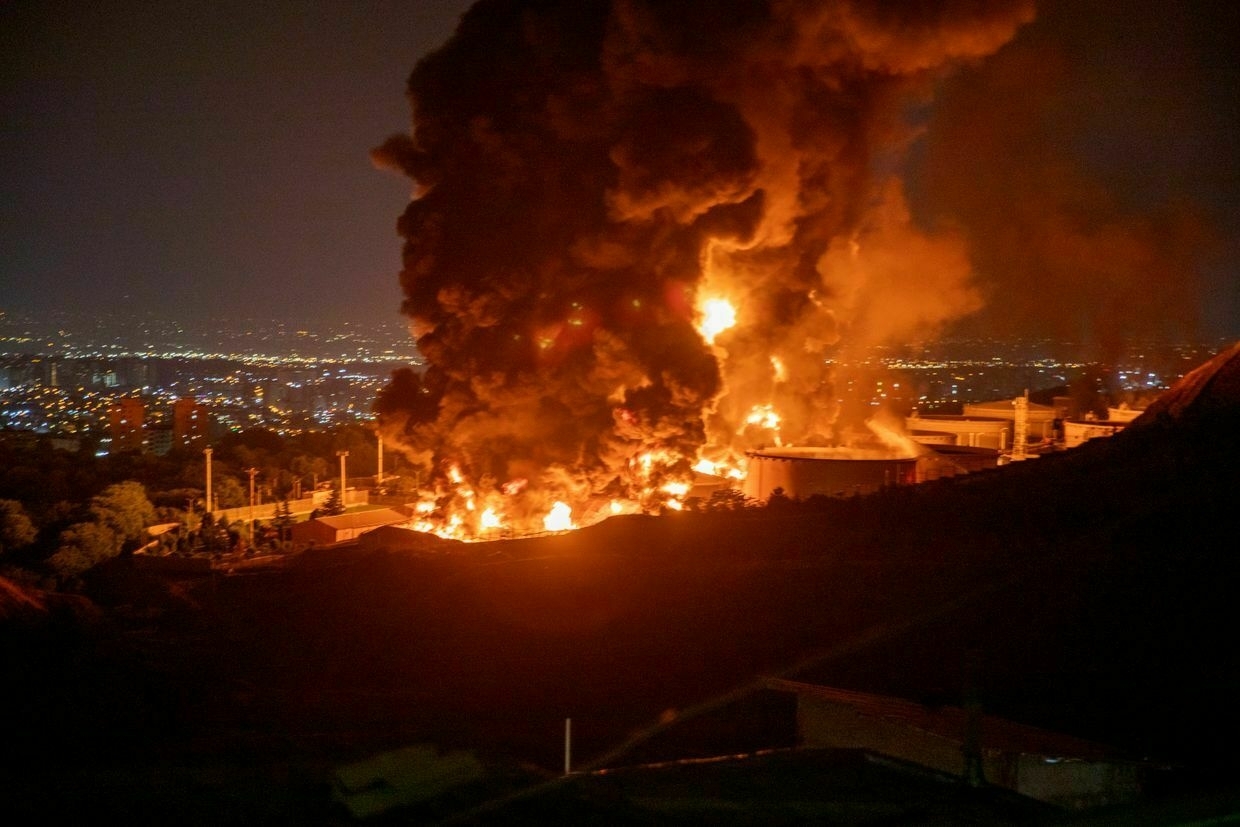
-
Ukraine's deep strikes cost Russia over $10 billion this year, Syrskyi says
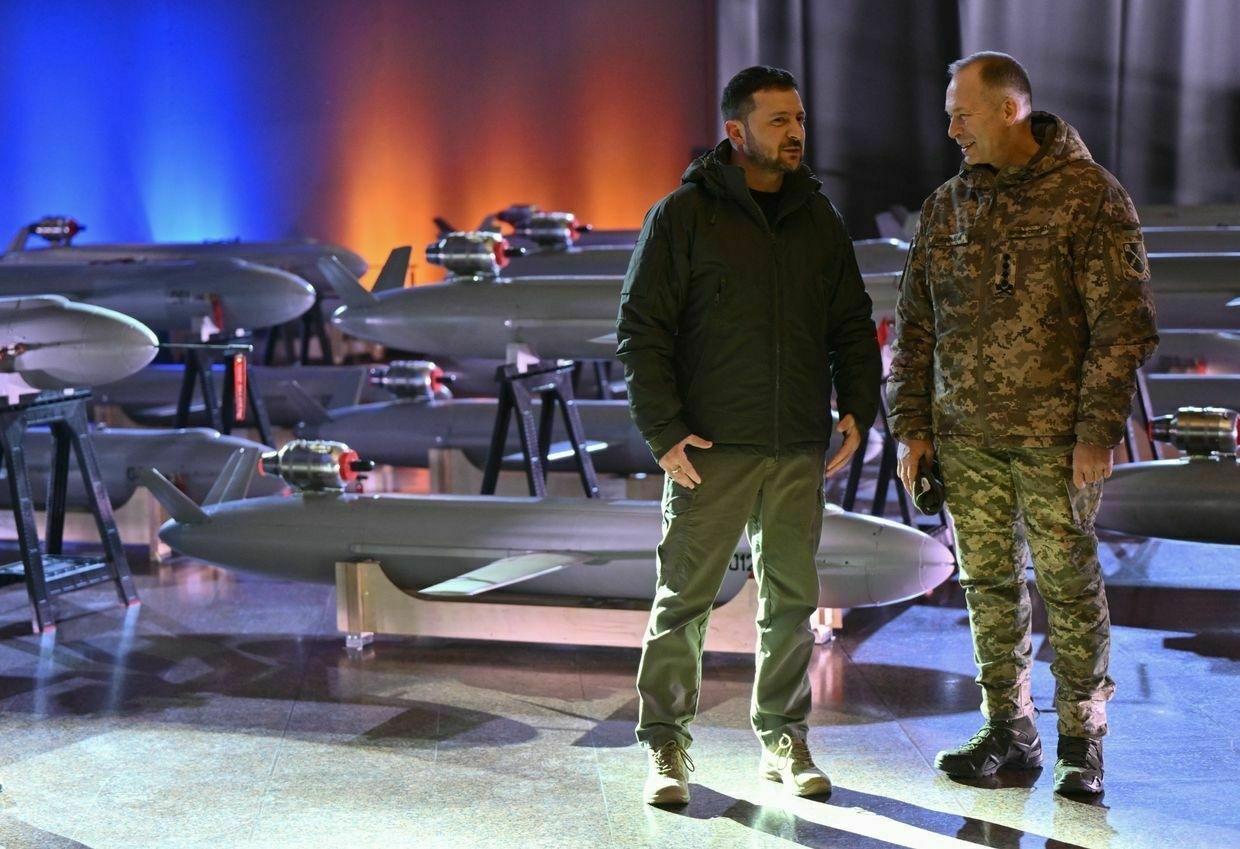
Ukrainian strikes deep inside Russian territory between January and May have cost Russia over $10 billion, including $1.3 billion in direct damage to industrial facilities and infrastructure, Commander-in-Chief Oleksandr Syrskyi told journalists on June 21.
The indirect damage caused by the disruption of Russian industrial activities is estimated at $9.5 billion, putting the cost-to-result ratio of Ukrainian deep strikes at 1:15, Syrskyi said at a briefing attended by the Kyiv Independent.
Kyiv has ramped up drone attacks against Russian military and industrial sites far behind the border as part of its DeepStrike strategy, seeking to undermine Moscow’s ability to wage war.
The attacks targeted Russia’s oil refining sector, the fuel and lubricants facilities, energy and transport support, and strategic lines of communication.
“Remember that during negotiations, the Russian side listed a halt to strikes against the oil refining industry as one of the conditions. This shows that our strikes are truly effective,” Syrskyi said.
Oil and gas exports are among Russia’s key revenue sources and play a crucial role in sustaining its war effort.
“Of course, we will continue (attacking deep inside Russian territory). We will increase the scale and the depth,” the commander added, stressing that the attacks target solely military facilities.
Ukraine has increased the production of long-range drones with the support of Western partners and developed new tactics in striking Russia behind the lines.
In one of the most audacious attacks, the Security Service of Ukraine (SBU) on June 1 struck dozens of Russian bombers and other aircraft across four different air bases in an operation dubbed Spiderweb. SBU drones were smuggled to Russia in trucks and then deployed to attack airfields thousands of kilometers from the Russia-Ukraine border.
Russia ‘afraid to admit’ scale of losses, trying to hide by dumping soldiers’ bodies on Ukraine, Zelensky saysUkrainian authorities have confirmed that at least 20 of the bodies Russia returned as Ukrainian were actually Russian soldiers, President Volodymyr Zelensky said.The Kyiv IndependentTim Zadorozhnyy
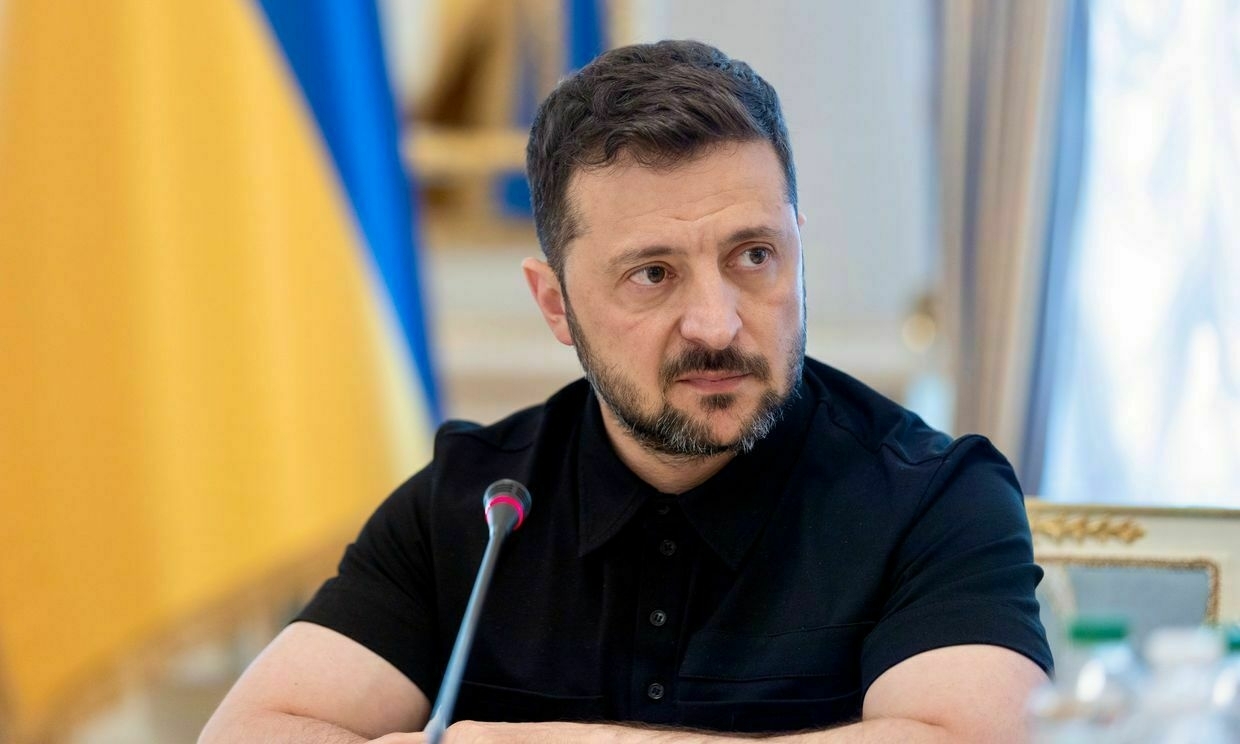
-
Russian attacks kill 4, injure 23 in Ukraine over past day
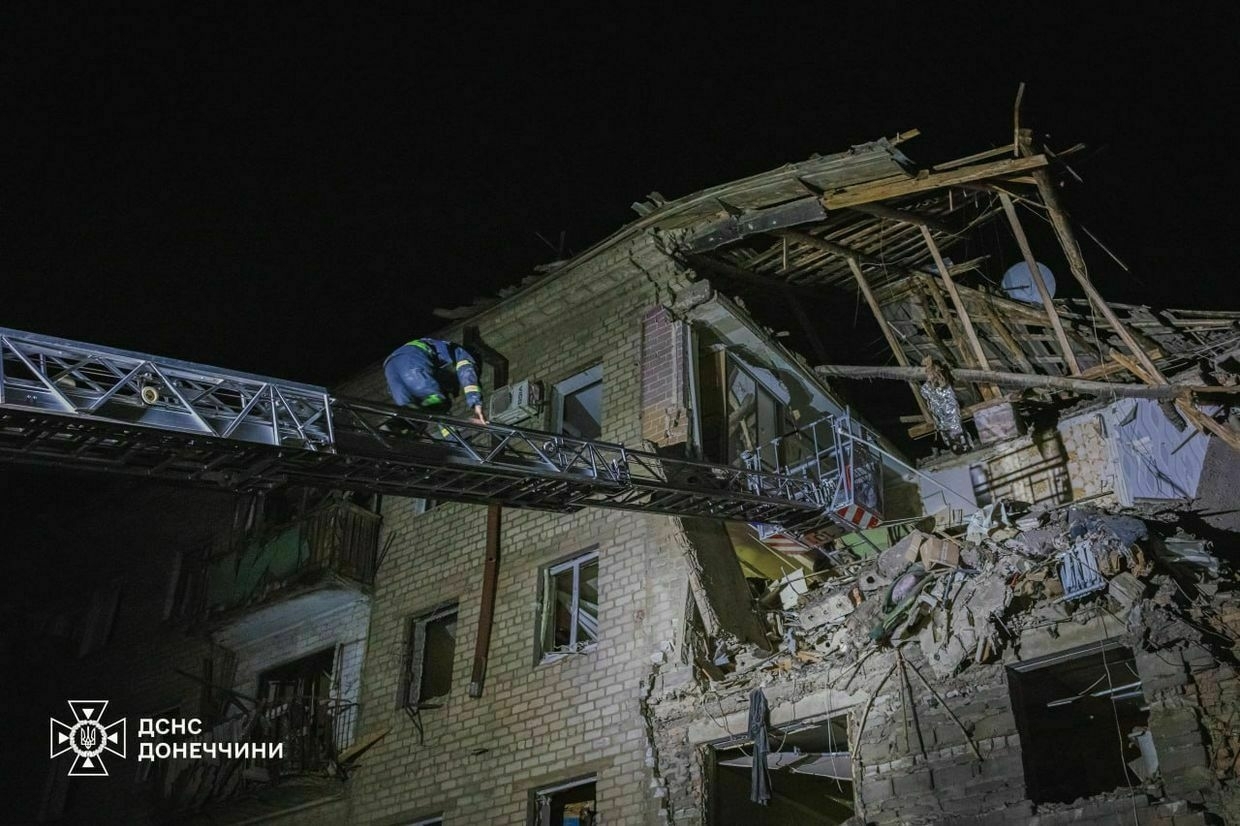
Russian strikes across Ukrainian regions killed at least four civilians and injured at least 23 over the past day, regional authorities reported on June 22.
Russia launched two Iskander-M or North Korean KN-23 ballistic missiles, an S-300 anti-aircraft missile, and 47 Shahed-type attack drones and decoy drones against Ukraine overnight, primarily targeting Chernihiv Oblast, Ukraine’s Air Force said.
Ukrainian air defenses reportedly shot down 18 drones, while 10 disappeared from radars or were intercepted by electronic warfare. Seven hits by Russian aerial weapons were recorded overnight in Chernihiv, Sumy, and Odesa oblasts.
In Chernihiv Oblast, a civilian was killed in a Russian drone attack against the Nizhyn district, Governor Viacheslav Chaus reported.
In Dnipropetrovsk Oblast, Russian drone and artillery attacks against the Nikopol district injured seven people and damaged multiple houses and civilian infrastructure, Governor Serhii Lysak reported. A 63-year-old man has been hospitalized and is in moderate condition.
Russian attacks across Donetsk Oblast killed two people and injured 13, according to Governor Vadym Filashkin. This included a civilian killed and three injured in Sloviansk, and another killed and two injured in Kostiantynivka.
In Kharkiv Oblast, a Russian attack killed a 77-year-old man in the village of Staryi Saltiv, Governor Oleh Syniehubov said.
Russian attacks against Kherson Oblast wounded three civilians, said the regional governor, Oleksandr Prokudin. Five multi-story apartment buildings and 11 houses were damaged.
Russia ‘afraid to admit’ scale of losses, trying to hide by dumping soldiers’ bodies on Ukraine, Zelensky saysUkrainian authorities have confirmed that at least 20 of the bodies Russia returned as Ukrainian were actually Russian soldiers, President Volodymyr Zelensky said.The Kyiv IndependentTim Zadorozhnyy
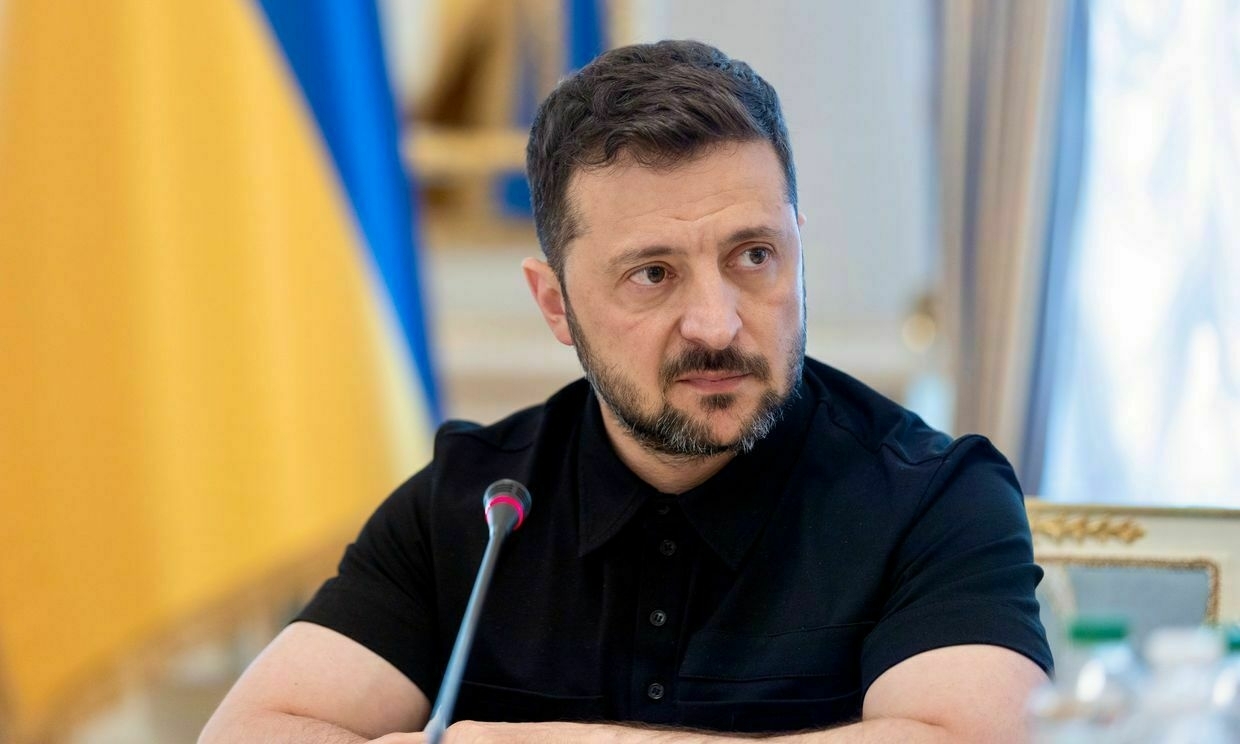
-
General Staff: Russia has lost 1,011,490 troops in Ukraine since Feb. 24, 2022
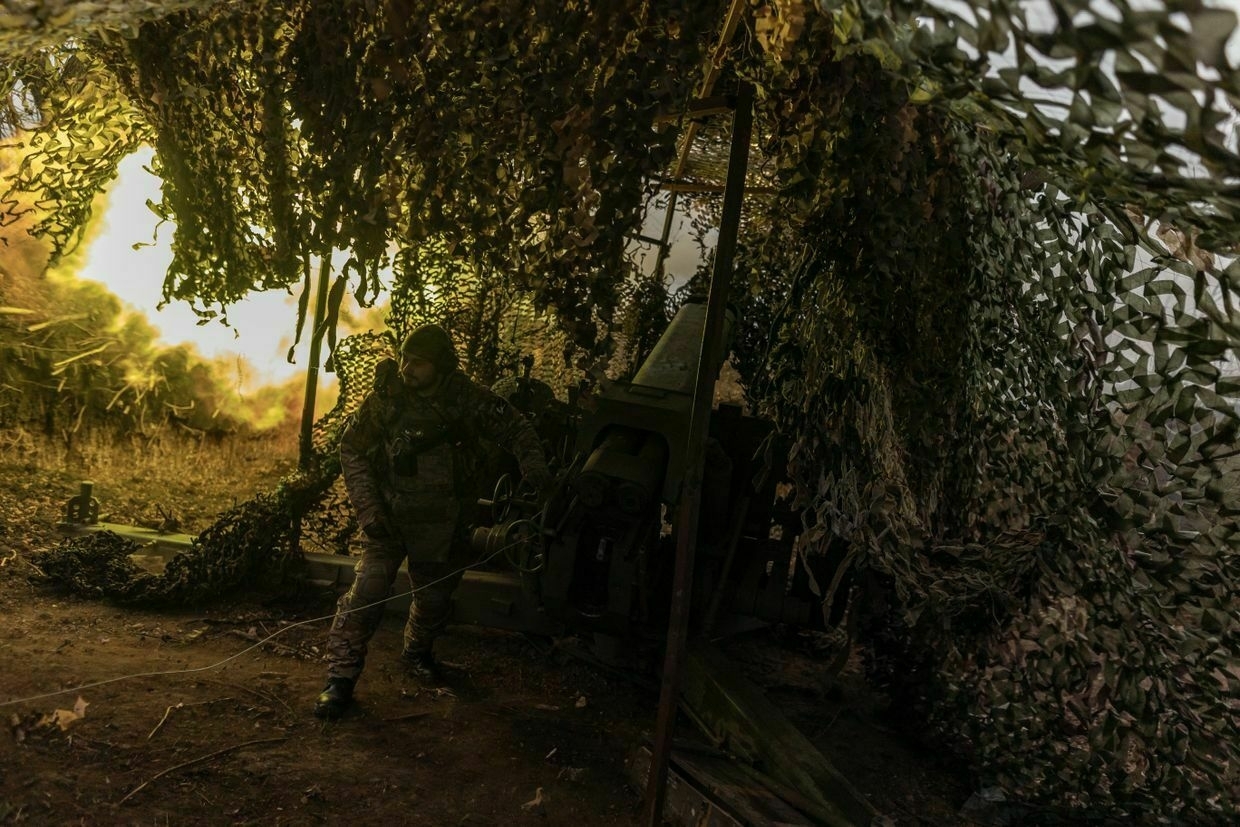
Russia has lost 1,011,490 troops in Ukraine since the beginning of its full-scale invasion on Feb. 24, 2022, the General Staff of Ukraine’s Armed Forces reported on June 22.
The number includes 1,100 casualties that Russian forces suffered just over the past day.
According to the report, Russia has also lost 10,964 tanks, 22,867 armored fighting vehicles, 52,734 vehicles and fuel tanks, 29,432 artillery systems, 1,421 multiple launch rocket systems, 1,188 air defense systems, 416 airplanes, 337 helicopters, 41,579 drones, 3,376 cruise missiles, 28 ships and boats, and one submarine.
Russia pulls its scientists out of Iranian nuclear plant, as Israeli strikes threaten decades of collaborationIsrael’s strikes on Iranian nuclear facilities have alarmed none more than Russia, the country that first brought nuclear power to Iran in defiance of Western objections. We’re “millimeters from catastrophe,” said Kremlin spokeswoman Maria Zakharova on June 18 in response to a bombing campaign that Israel launched againstThe Kyiv IndependentKollen Post
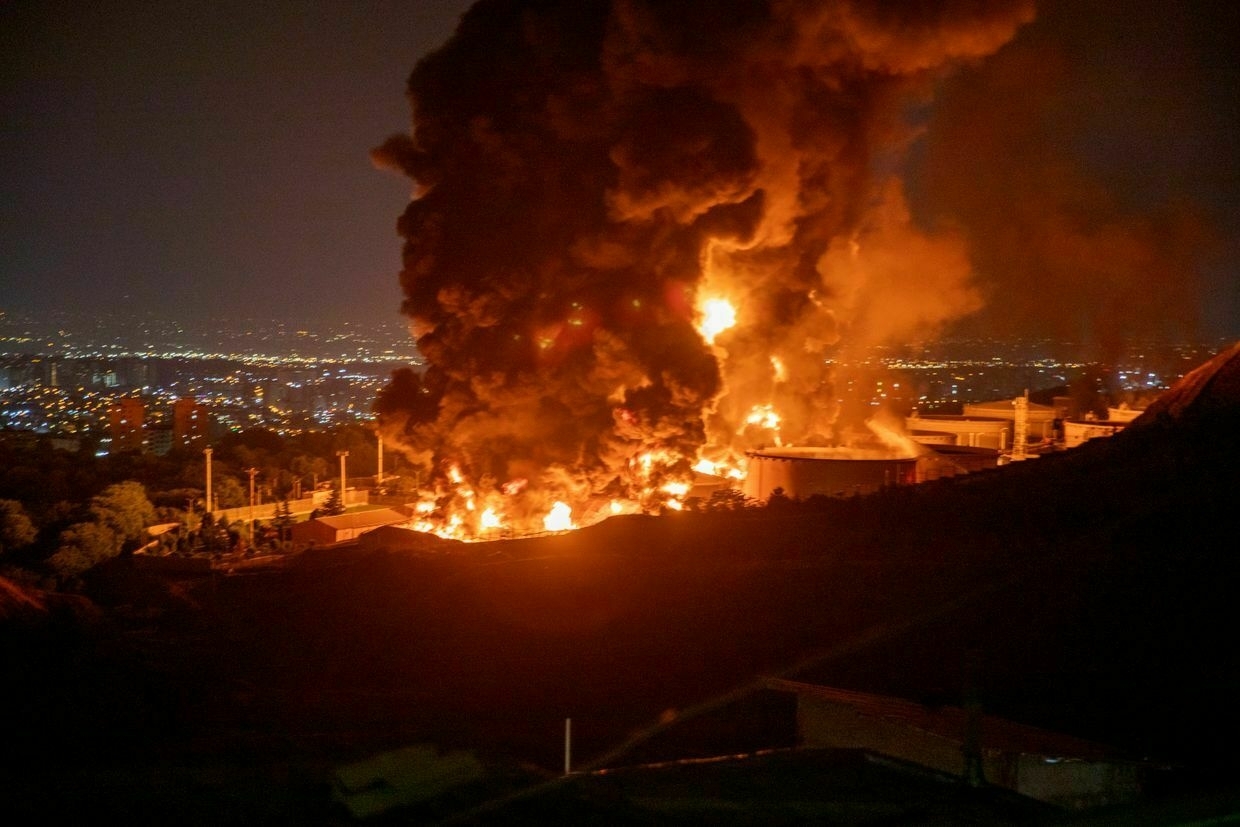
-
Ukraine's security service is teaching teenagers how to avoid recruitment by Russian intelligence
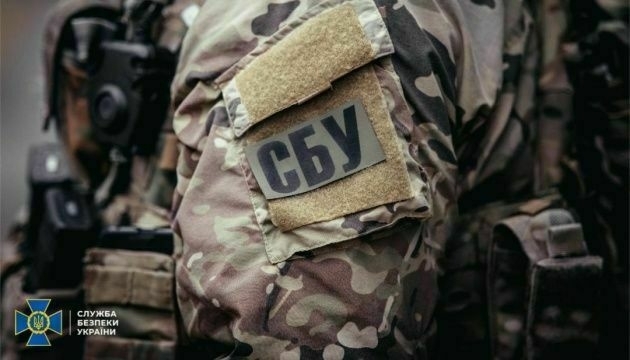
Ukraine’s security service (SBU) is teaching teenagers how to avoid recruitment by Russian intelligence online, the New York Times (NYT) reported on June 21.
“Maybe not all of these special operations are reported in the media — but believe me, the enemy is not sleeping… They are working actively and carrying out illegal activities, as strange as it may sound, directly inside your phones,” SBU spokesperson Roksolana Yavorska-Isaienko told students.
Approximately 22% of Ukrainians recruited by Russian intelligence to conduct sabotage or terrorist attacks are minors, Artem Dekhtiarenko, SBU spokesperson, said on April 2.
Russian intelligence attempts to recruit Ukrainian civilians online, offering easy money in return for sharing sensitive data or preparing sabotage or terrorist acts.
Russian intelligence finds its recruits using social platforms, including Telegram, Discord, and TikTok.
Unsuspecting teenagers are often offered hundreds or even thousands of dollars to conduct simpler tasks such as delivering packages or taking photos of energy sites, the NYT reports.
More serious tasks are commonly assigned to teenagers once they have been blackmailed for conducting less serious operations beforehand or when their phones are hacked to reveal compromising photos.
Russian intelligence is actively attempting to recruit Ukrainian nationals for illegal operations across the EU, Ukraine’s military intelligence agency (HUR) said on June 2.
“The recruitment of Ukrainians for hostile operations in Europe is yet another tool of hybrid aggression that the Russian Federation is waging against Ukraine and the entire European community,” HUR said.
The SBU caught a Russian agent as he was filming a military airfield in preparation for a Russian strike, the agency reported on June 15.
The Russian Federal Security Service (FSB) recruited the unemployed 24-year-old via the Telegram messaging app to collect coordinates for air attacks on airfields and logistic depots, the SBU said.The Russian FSB allegedly offered “easy money” and instructed the recruit to find military facilities and carry out reconnaissance on the ground.
Love, sex, survival — Ukrainian author on how war shapes intimacy in UkraineIn Ukraine, Russia’s war of aggression has upended not just borders but the country’s cultural landscape. Conversations about identity, gender, and sexuality have gained new urgency. Women are increasingly stepping into combat roles once dominated by men, while relationships can dissolve as quickly as they form. Many peopleThe Kyiv IndependentKate Tsurkan

-
'A total failure' — Hungarian opposition leader says Ukraine EU accession national poll had lowest ever turnout
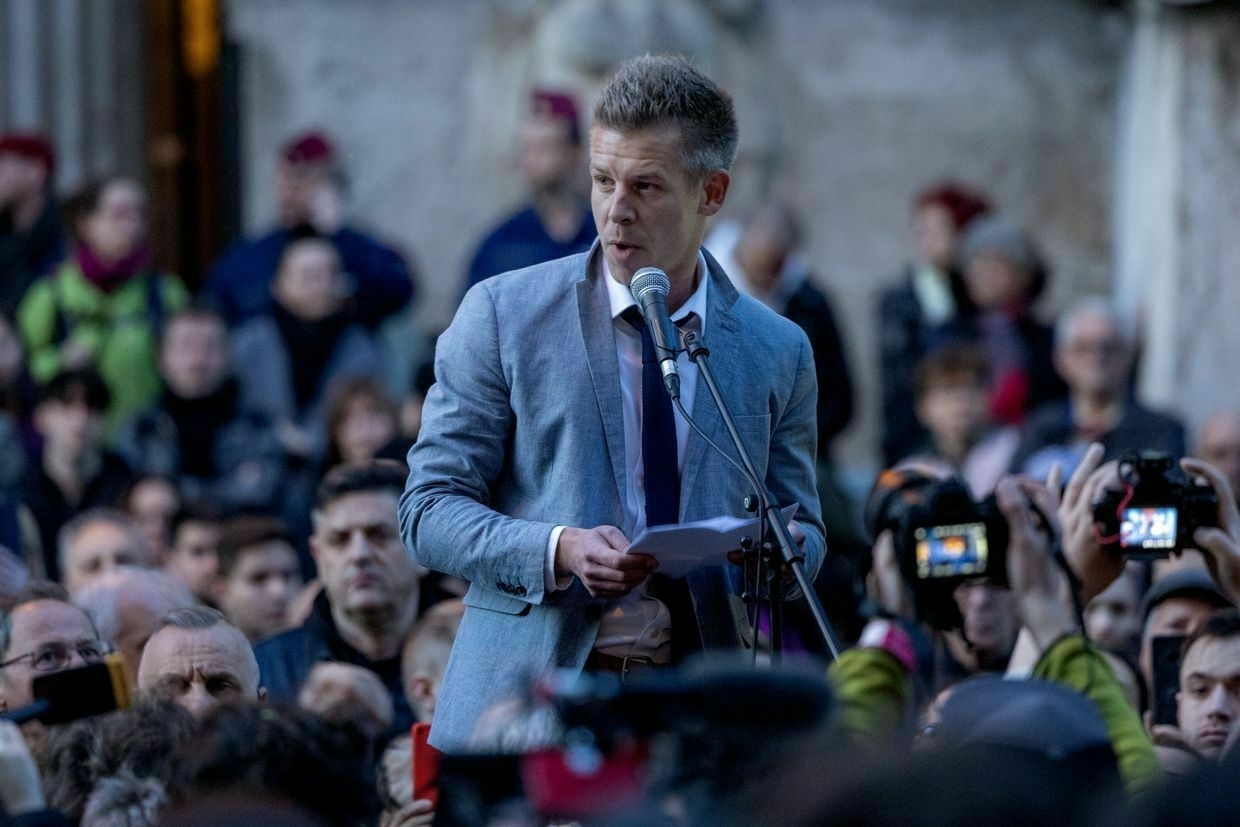
Hungary’s national consultation on Ukraine’s accession to the EU had the lowest ever turnout at such a poll, Hungarian opposition leader Peter Magyar said on June 21.
“The… government propaganda campaign is a total failure. Based on information we received from multiple sources within Magyar Posta (Hungarian Post), only 3-7% of the sent ‘ballots’ were returned,” Magyar said in a post to social media.
The poll was announced by Hungarian Prime Minister Viktor Orban in early March and officially launched on April 19 with ballot papers sent to Hungarian citizens. Many ballot papers explicitly encouraged voters to reject Ukraine’s EU bid.
Orban, on April 22, said he voted against Ukraine’s accession to the EU in the national consultation, publicly sharing photos of himself marking “against” on the poll ballot.
“This means that realistically, a maximum of 500,000 people may have ‘voted’ on paper… the Prime Minister’s Office revealed… that the number of online submissions was negligible compared to the paper-based ones,” Magyar said.
“This aligns with information received from government sources — indicating that despite the propaganda lies, the total number of ‘voters’ could be at most 600,000,” he added.
Despite the government’s resistance, polling shows public support for Ukraine’s accession to the bloc. According to Magyar’s opposition party, Tisza’s “Voice of the Nation” initiative, which received over 1.1 million responses, 58.18% of participants supported Ukraine’s EU bid.
Magyar claims that the national poll garnered around 600,000 responses would mean that the opposition party’s own polling received more responses than the government poll.
“This is the lowest number in the ‘glorious’ history of (national consultations). And this was only achieved over several months, with total mobilization and the burning of tens of billions in public funds. A total failure,” Magyar said.
Hungarian officials have repeatedly threatened to undermine Ukraine’s EU candidacy and EU support for Ukraine. Hungary has repeatedly blocked or delayed EU aid packages for Kyiv.
"(T)he failed, corrupt regime doesn’t care about people’s real problems, and doesn’t dare to look people in the eye. They only send them letters," Magyar said.
Comrades, be proud of lying about two million pen pals, funded by 10 billion forints ($29 million) in state propaganda," he added, addressing Hungary’s ruling government.
European officials have denounced Hungary for aligning with Russia. European officials, including Estonian Foreign Minister Margus Tsahkna, have suggested stripping Hungary of its voting power within the bloc.
Hungary maintains positive relations with Russia in contrast with other EU members. On March 26, Hungarian Foreign Minister Peter Szijjarto visited Moscow to discuss continued economic cooperation between the two countries.
How 3 years of war have ravaged Ukraine’s forests, and the people who depend on themEditor’s note: This story was published in conjunction with Grist. Twenty-two-year-old software developer Artem Motorniuk has spent his entire life in the Zaporizhzhia region of Ukraine, living in the north and visiting his grandparents in the south. It’s been almost four years since he’s seen them in person.The Kyiv IndependentChad Small
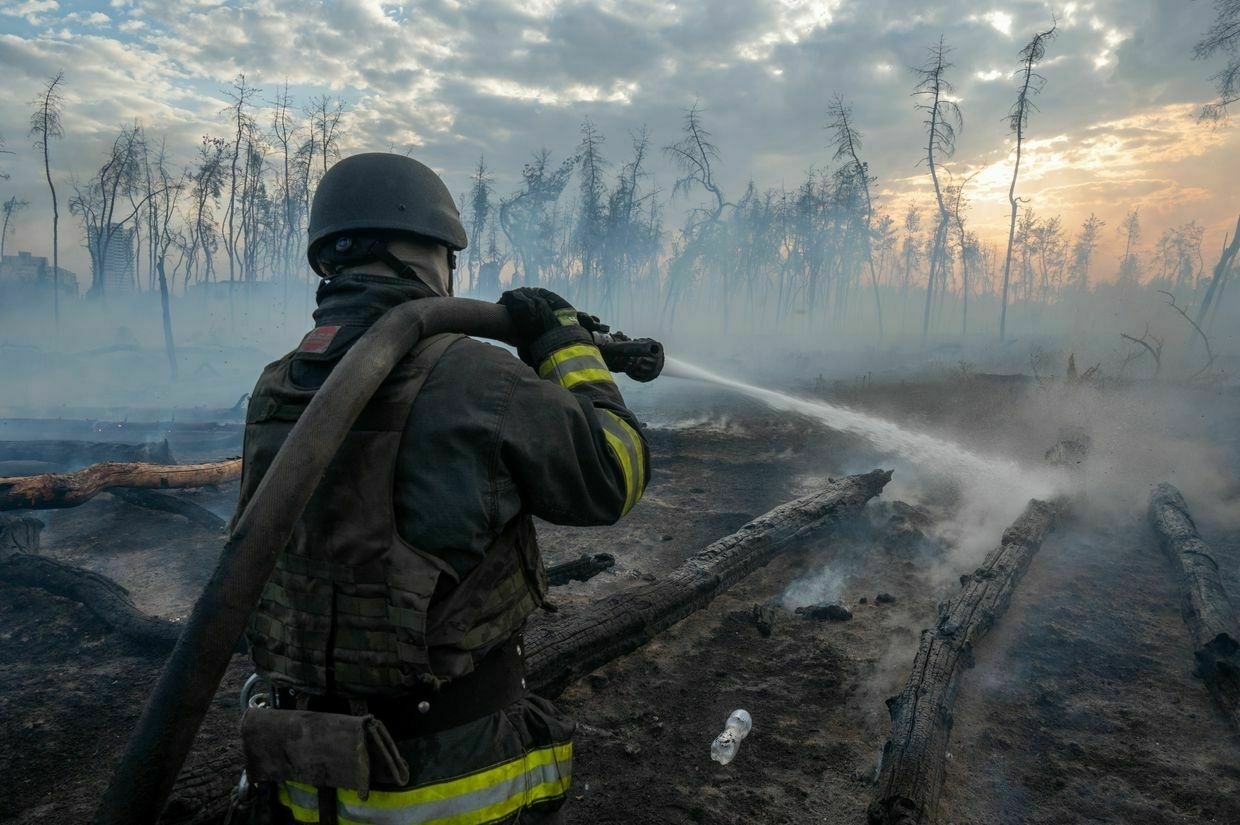
-
US conducts air strikes on Iranian nuclear sites
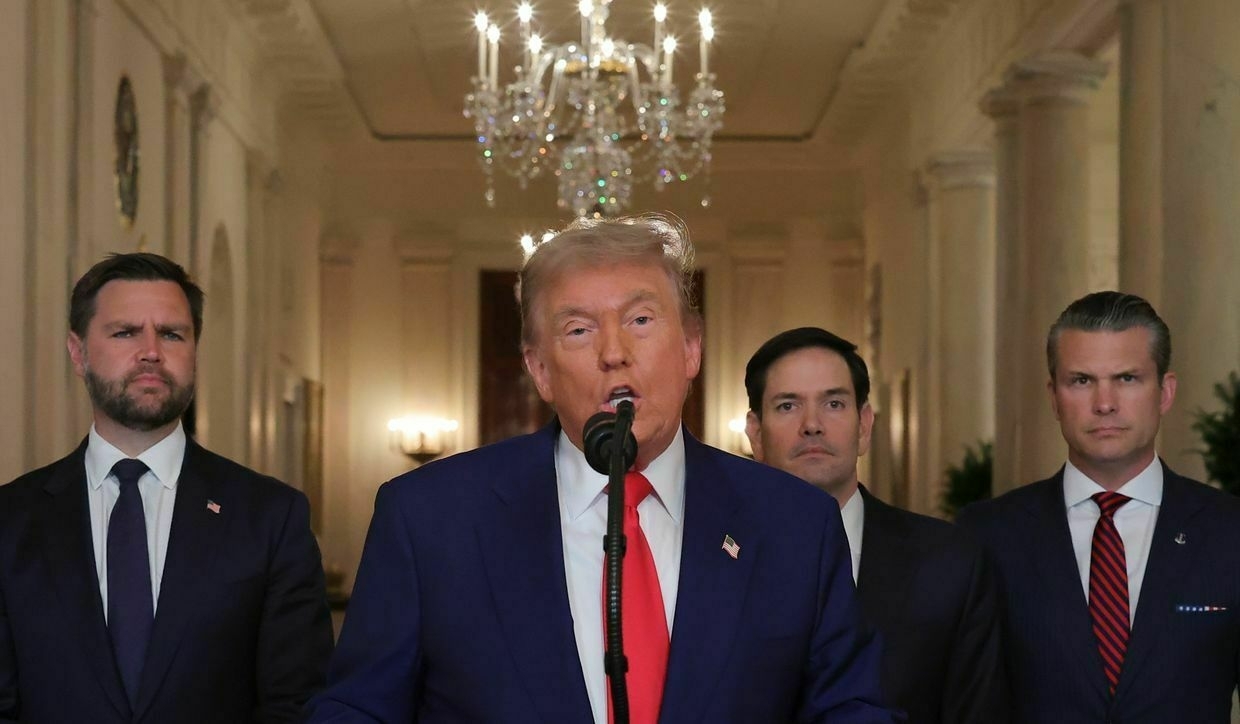
Editor’s note: This is a developing story and is being updated.
The United States conducted air strikes on nuclear sites in Iran, U.S. President Donald Trump said on June 21, calling the attacks a “spectacular success."
“We have completed our very successful attack on the three nuclear sites in Iran, including Fordow, Natanz, and Esfahan. All planes are now outside of Iran air airspace,” Trump said.
Iran’s Foreign Minister Abbas Araghchi condemned the U.S. attacks and warned they will have “everlasting consequences,” with Tehran requesting an emergency U.N. Security Council meeting.
Israel and Iran have exchanged strikes in recent days as Israel voices concern over Tehran’s continued development of nuclear weapons.
The White House has backed Israel, remaining cautious in escalating its role in the conflict. The strikes mark U.S. military involvement in the conflict.
“A full payload of bombs was dropped on the primary site, Fordow. All planes are safely on their way home. Congratulations to our great American Warriors,” Trump said.
The U.S. president shared a separate post with a screenshot that said, “Fordow is gone."
The International Atomic Energy Agency (IAEA) said it had detected no increase in radiation at the targeted sites, while the Iranian state media and officials sought to downplay the damage.
“Iran must now agree to end this war,” Trump then said in another post on social media.
Trump later held a live address where he reiterated calls for Iran to join negotiations as the U.S. and Israel demand that Iran abandon its nuclear program.
“This cannot continue. There will be either peace or there will be tragedy for Iran, far greater than we have witnessed over the last eight days. Remember, there are many targets left,” Trump said.
Trump has called for Tehran to negotiate an end to the conflict as Israel and Iran exchange strikes.
The U.S. president hopes that the strikes will push Iran to the negotiating table, sources familiar with the matter told CNN, adding that the U.S. is not planning additional military actions in Iran.
Democratic Senate Minority Leader Chuck Schumer has condemned Trump’s decision to conduct air strikes without congressional approval.
“President Trump must provide the American people and Congress clear answers on the actions taken tonight and their implications for the safety of Americans,” Schumer said.
Israel asked the U.S. to join military operations targeting Iran’s nuclear program, including a strike on the fortified Fordow uranium enrichment site, Axios reported on June 14, citing two Israeli officials.
Trump suggested in a conversation with Israeli Prime Minister Benjamin Netanyahu that he would consider joining the operation if needed, an Israeli official told Axios.
A White House official denied that claim on June 13. Another U.S. official confirmed that Israel had urged the U.S. to take part, but said Washington is not currently considering involvement.
Israeli Ambassador to the U.S. Yechiel Leiter told Fox News on June 13 that “the entire operation… really has to be completed with the elimination of Fordow."
Russia and Iran have cooperated to develop their own nuclear programs and weapons as both countries face Western sanctions.
Russia supplied Iran with the Middle East’s first nuclear power plant despite objections from the West.
Iran has assisted Russia in its war against Ukraine, providing drones and missiles. Tehran has helped Moscow develop weapons of its own. Russia’s Geran drone is modelled after the Iranian Shahed drone.
Russia pulls its scientists out of Iranian nuclear plant, as Israeli strikes threaten decades of collaborationIsrael’s strikes on Iranian nuclear facilities have alarmed none more than Russia, the country that first brought nuclear power to Iran in defiance of Western objections. We’re “millimeters from catastrophe,” said Kremlin spokeswoman Maria Zakharova on June 18 in response to a bombing campaign that Israel launched againstThe Kyiv IndependentKollen Post
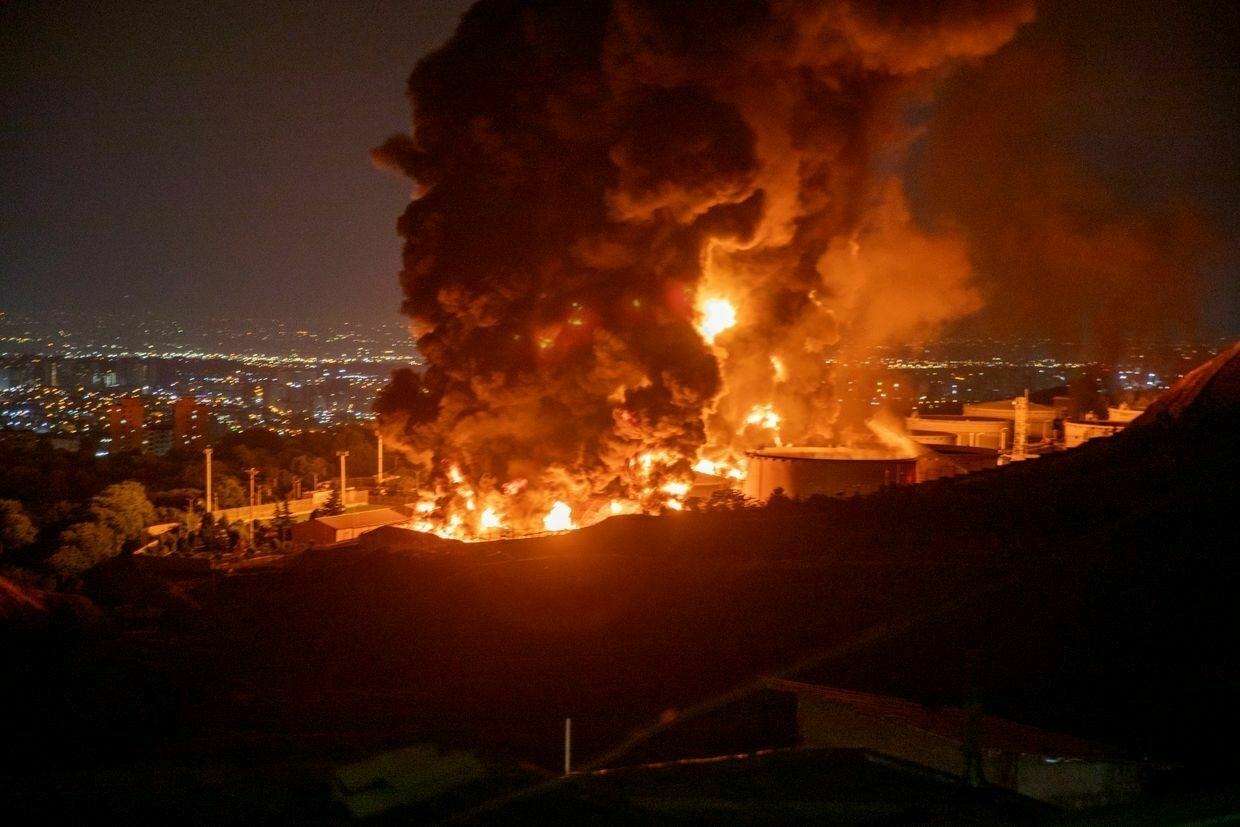
-
Ukrainians forcibly deported by Russia held in basement without food, water, media reports
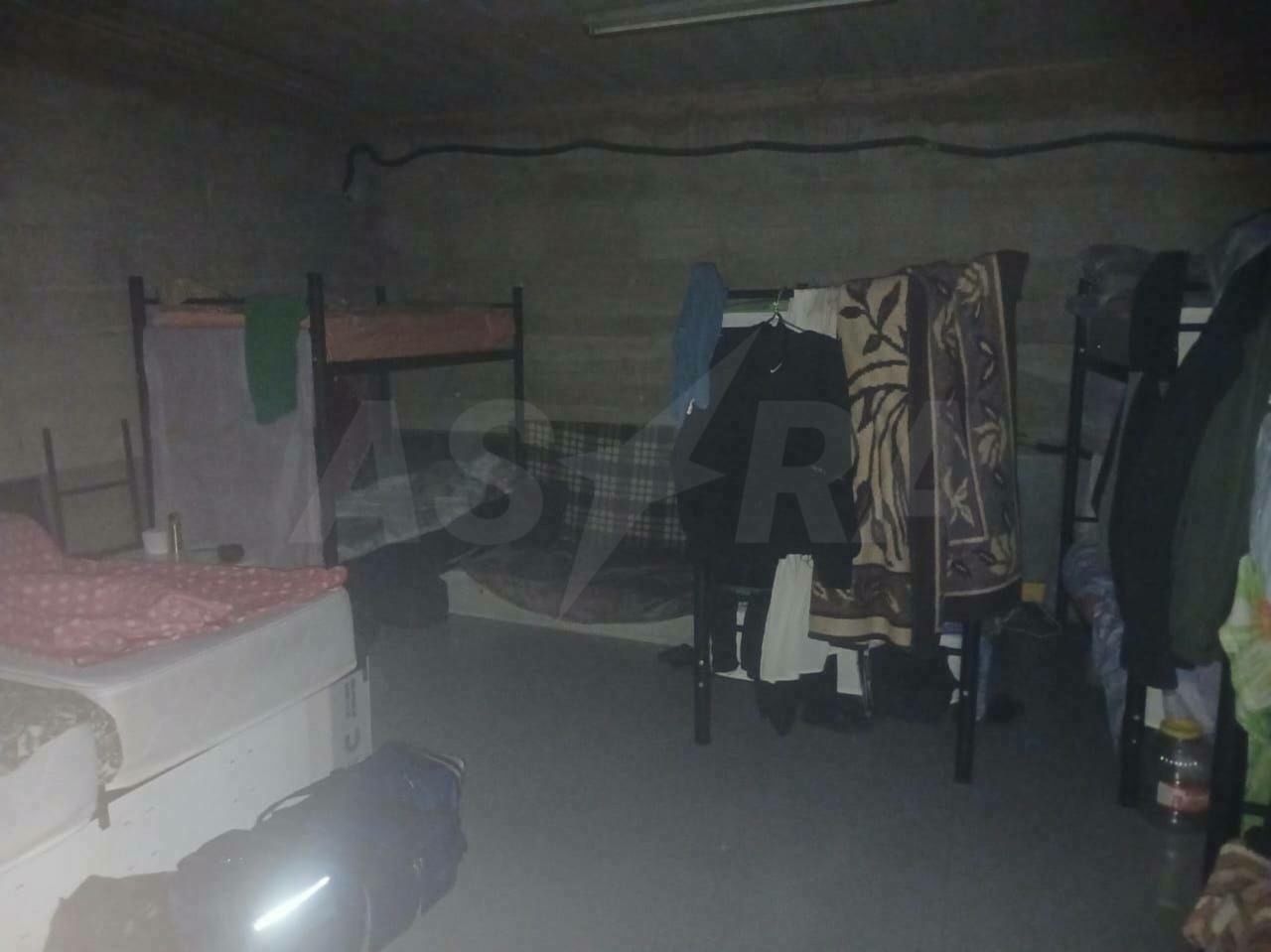
Over 45 Ukrainians forcibly deported by Russia from Ukraine’s occupied territories are being held in a basement at Russia’s border with Georgia without food, water, and basic healthcare, independent media outlet Astra reported on June 21.
“We are in a basement without utilities: there is no shower or toilet, they don’t feed us. Volunteers bring humanitarian aid, but it lasts for a couple of days and not for everyone,” one of the held Ukrainians told Astra.
A decree by Russian President Vladimir Putin has ordered Ukrainians still living in occupied territories to leave unless they “regulate their legal status,” namely, obtaining Russian citizenship.
“We emphasize that these systematic deportations and persecutions are part of Russia’s genocide policy against the Ukrainian people,” Foreign Ministry spokesperson Heorhii Tykhyi said on March 21.
At least 45 Ukrainians have been held at the Verkhniy Lars border checkpoint between Georgia and Russia for several days.
One of the deported Ukrainians has been hospitalized as they await passage out of Russia and into Georgia.
“There were 8 of us, 3 days ago. Every day, more people are brought here and the number is growing. Now there are 45 people, some have been here for a month. There are disabled people and people with serious illnesses,” one of the held Ukrainians said.
The basement facility has since 2023 held deported Ukrainians barred from entering the Russian Federation and the Ukrainian territories it occupies.
The held Ukrainians were denied entry into Georgia. Most did not have the necessary travel documents, but 16 Ukrainians with passports were denied entry as well, Astra reported, citing the non-profit organization Tbilisi Volunteers Organization.
“The basement is damp, there are drops of water on the ceiling, (it’s hard) to breathe, everyone smokes, they don’t let us outside. We sleep for four hours, taking turns. Some sleep on the floor,” one of the deported Ukrainians said.
The basement only houses 17 sleeping spaces, but another 100 deported Ukrainians are expected to arrive at the facility, a volunteer told Astra.
Following a pause in deportations to Georgia in 2024, Russia has resumed deportations as Georgia prepares new immigration legislation, the Tbilisi Volunteers Organization says.
Serhiy Serdiuk, a resident of occupied Zaporizhzhia Oblast, was deported and banned from re-entering Russia and Ukraine’s occupied territories for 40 years, the Guardian reported on June 21.
Russian authorities pressed Serdiuk, an educator, to continue work under Russia’s imposed school curriculum.
Serdiuk and other staff at a school in Zaporizhzhia Oblast’s Komysh-Zoria town refused and were met with threats.
Serdiuk was similarly deported to Georgia, from where he flew to Moldova and crossed back into Ukraine.
Due to Russia’s illegal and unrecognized annexation of Ukraine’s occupied territories, Ukrainian citizens are pressured to obtain Russian citizenship or face deportation and entry bans.
Pro-Russian ‘peace protestors’ set to descend on NATO summitDutch protesters who regularly call for an end to military aid to Ukraine will descend on The Hague next week to protest the upcoming NATO summit, which is set to take place on June 24-25. The group will protest against NATO alongside several other organizations and has urged supporters onThe Kyiv IndependentLinda Hourani
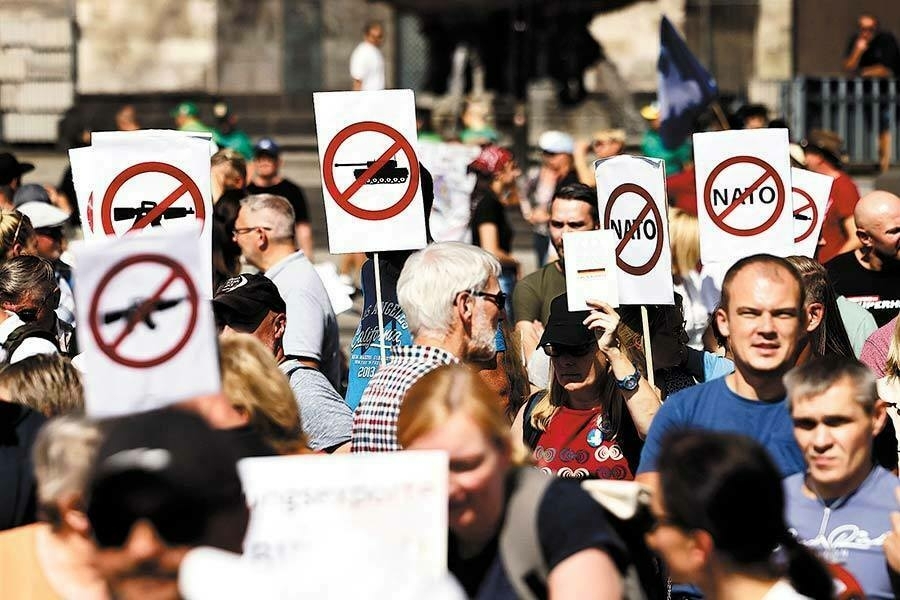
-
NATO summit to sideline Ukraine, focus on flattering Trump, Politico reports
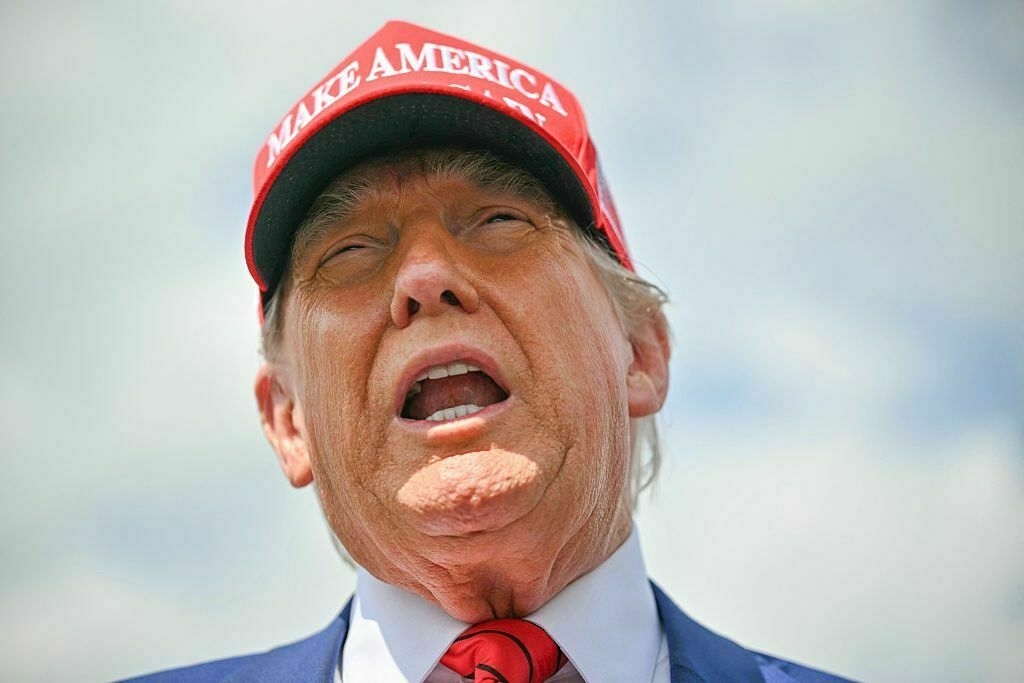
The narrowed focus of the upcoming NATO summit in The Hague — which will have only a single session devoted to defense spending — is designed to appease U.S. President Donald Trump, Politico reported on June 21, citing European defense officials.
NATO leaders will convene in The Hague June 24-25 to discuss raising the alliance’s defense spending target to 5% of the GDP — a proposal the U.S. has championed but from whcih it considers itself exempt.
"(Trump) has to get credit for the 5% — that’s why we’re having the summit," one unnamed European defense official told Politico.
“Everything else is being streamlined to minimize risk."
The organizers of the summit have shortened the meeting from the typical two-day schedule to 24 hours in the hopes of keeping the focus on Trump and deliver a victory to the U.S. president. Trump plans to give an speech at the end of the summit celebrating the new spending benchmark and his own contributions to the pledge.
There will be no meeting of NATO’s Ukraine council at the summit.
The European Council confirmed on June 20 that President Volodymyr Zelensky will attend the summit in The Hague, despite media reports that Zelensky was considering skipping the event altogether. The reports followed Zelensky’s disappointing venture at the G7 summit in Canada.
While Zelensky hoped to reset relations with the U.S. in a third face-to-face meeting with Trump, he never got the chance. Trump abruptly left the G7 summit, claiming he had to focus on the escalating conflict between Israel and Iran.
The Ukraine council’s absence from the upcoming summit represents another concession to Trump, whose attention has shifted to the Middle East and who continues to refuse to impose sanctions on Russia.
Trump has also been unable to fulfill his promises to end the war in Ukraine. Six months of U.S. peacekeeping efforts under the Trump administration have brought a ceasefire no closer, as Russia escalates attacks and the civilian death toll climbs.
Convening NATO’s Ukraine council could draw attention to Trump’s ongoing failure, Politico reported.
“The priority is really to announce success in The Hague,” a European official said. “The longer-term perspective is less important."
Trump’s “America First” doctrine has repeatedly cast doubt on Washington’s commitment to transatlantic alliances, especially NATO. In recent years, Trump has alarmed member states by questioning whether the U.S. should defend alliance members that do not meet military spending benchmarks.
Trump has also signaled that the U.S. will no longer be Ukraine’s main ally in its defense against Russia and has called on European countries to shoulder the burden of supporting Ukraine.
While NATO summits in recent years have focused heavily on Russia’s full-scale war in Ukraine, this year’s joint communique may exclude references to the war altogether. NATO Secretary General Mark Rutte on June 9 admitted that the language may not be included in the statement, but insisted the alliance remained committed to Ukraine’s future membership.
“The irreversible path of Ukraine into NATO is there, and it is my assumption that it is still there after the summit,” Rutte said. “Whether it is again in the communique or not, I think that’s not relevant, because all the language we previously agreed on is there — until we decide it is no longer there."
Pro-Russian ‘peace protestors’ set to descend on NATO summitDutch protesters who regularly call for an end to military aid to Ukraine will descend on The Hague next week to protest the upcoming NATO summit, which is set to take place on June 24-25. The group will protest against NATO alongside several other organizations and has urged supporters onThe Kyiv IndependentLinda Hourani
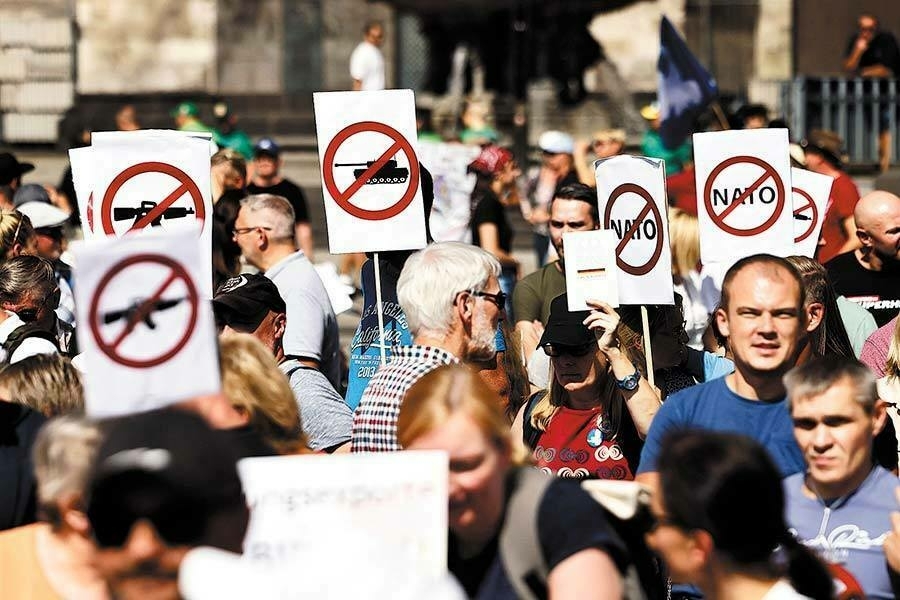
-
Russia has over 1,950 strategic missiles, Ukraine's military intelligence tells media
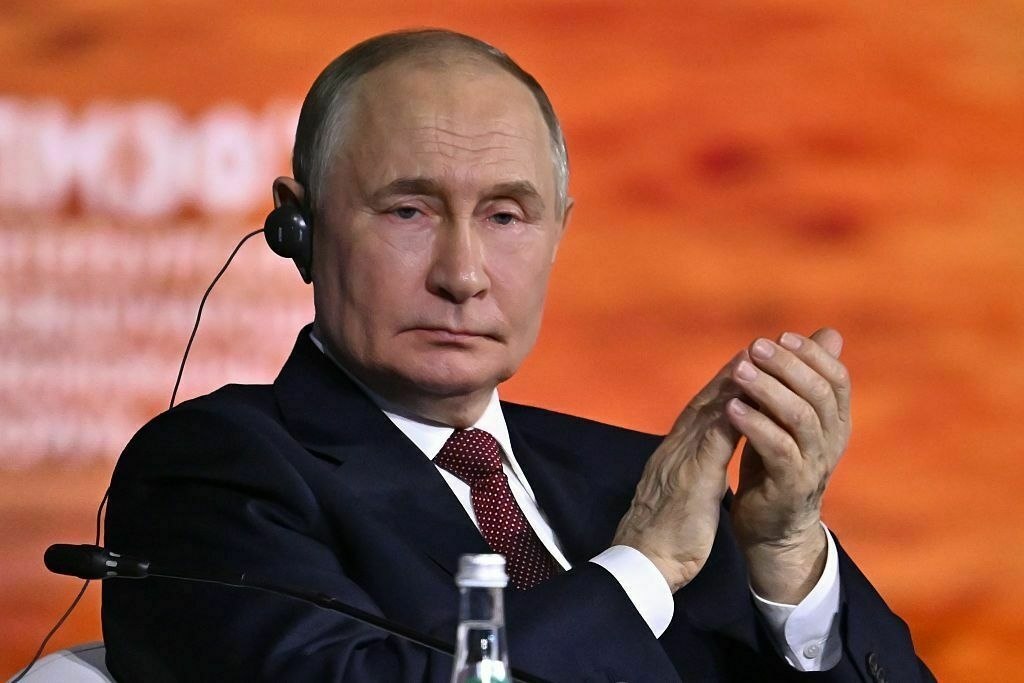
Russia’s weapons arsenal includes over 1,950 strategic missiles and thousands of drones, the news outlet RBC-Ukraine reported on June 21, citing a statement from Ukraine’s military intelligence agency (HUR).
According to HUR, the figures reflect Russia’s stockpiles as of June 15.
Throughout May and June, Russia has launched a series of mass missile and drone attacks against Ukrainian cities — including a large-scale strike against Kyiv on June 17 that left 30 dead and over 170 injured. Russia has repeatedly shattered its own drone record in attacks on Ukraine in the past month.
Russia’s missile stocks include up to 500 Iskander-M ballistic missiles, HUR told RBC-Ukraine, as well as up to 150 hypersonic Kinzhal missiles. Moscow also has up to 60 North Korean-made KN-23 ballistic missiles.
In addition to ballistics, Russia possesses up to 300 Iskander-K cruise missiles, up to 260 Kh-101 cruise missiles, up to 280 Kh-22/Kh-32 cruise missiles, and over 400 Kalibr cruise missiles.
Russia produces up to 195 missiles per month, HUR said.
Moscow also aims to ramp up drone production from 170 to 190 units per day, according to HUR. As of June 15, Russia had over 6,000 Shahed-type attack drones and over 6,000 Gerberas, a cheap decoy version that imitates the Shahed.
Russia’s arsenal highlights Ukraine’s urgent need for additional air defense systems, something President Volodymyr Zelensky has been continuously lobbying Western partners to provide.
Zelensky announced on June 20 that Ukraine is boosting production of interceptor drones to combat the growing numbers of Shahed UAVs launched by Russia each night. Ukraine is also producing its own missiles and recently announced that its domestically produced Sapsan ballistic missile had entered serial production.
The president hopes to secure additional funding for defense production from allies at the upcoming NATO summit.
Russia has paired its intensifying nightly attacks with escalated rhetoric about its territorial ambitions in Ukraine. Russian President Vladimir Putin on June 20 declared that “all of Ukraine” belongs to Russia, suggesting the Kremlin is looking to expand its illegal occupation .
Russian forces currently occupy five Ukrainian regions: Donetsk, Luhansk, Zaporizhzhia, and Kherson oblasts and the Autonomous Republic of Crimea.
Love, sex, survival — Ukrainian author on how war shapes intimacy in UkraineIn Ukraine, Russia’s war of aggression has upended not just borders but the country’s cultural landscape. Conversations about identity, gender, and sexuality have gained new urgency. Women are increasingly stepping into combat roles once dominated by men, while relationships can dissolve as quickly as they form. Many peopleThe Kyiv IndependentKate Tsurkan

-
'Ukrainian drones for the foot of every Russian soldier' — Zelensky responds to Putin's threat to conquer all Ukraine
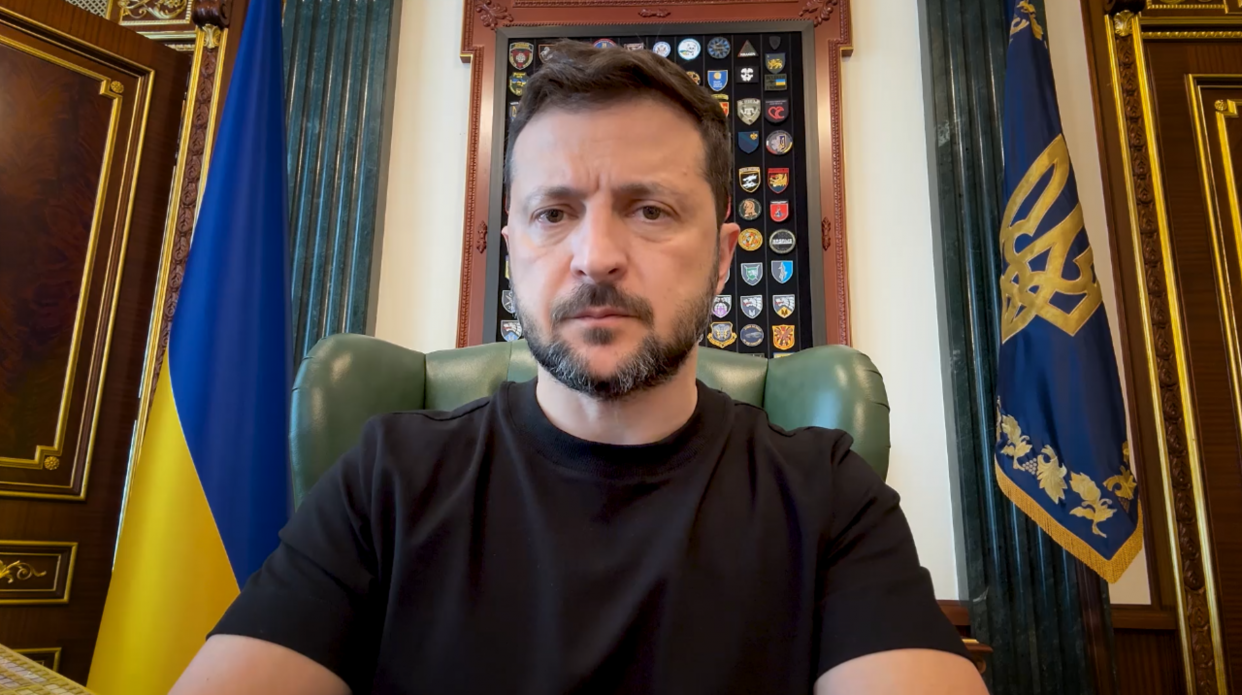
President Volodymyr Zelensky on June 21 responded to Russian President Vladimir Putin’s recent statements on Ukraine, saying that Ukraine intends to defend itself and that the government had made several decisions to bolster security in light of the Kremlin’s threats.
Putin said “all of Ukraine” belongs to Russia in a speech on June 20 at the St. Petersburg International Economic Forum, pointing to Moscow’s maximalist territorial ambitions in Ukraine.
“Wherever the foot of a Russian soldier steps is Russian land,” he said.
In his evening address on June 21, Zelensky described Putin’s speech as a “performance” but said Ukraine was taking the threats seriously.
“But when a murderer says he wants to kill, we take it seriously and will respond together with our partners,” Zelensky said.
“I hope with all our partners,” he added, likely referring to the United States' diminishing support for Ukraine under U.S. President Donald Trump.
Zelensky said he held meetings with Vasyl Maliuk, head of the Security Service of Ukraine (SBU), Commander-in-chief Oleksandr Syrskyi, and Foreign Minister Andrii Sybiha about how to bolster Ukraine’s defense and international support.
“Of course, we will find Ukrainian drones for the foot of every Russian soldier,” he said. “Of course, Ukraine will defend itself.”
The Ukrainian government has made several decisions in light of Russia’s overt threats, Zelensky said. These include a complete diplomatic overhaul and transformation of Ukraine’s Foreign Ministry, intensified efforts to coordinate international sanctions, and more funding for drone development.
Kyiv’s instructions for the SBU remain confidential, Zelensky said.
Russia ‘afraid to admit’ scale of losses, trying to hide by dumping soldiers’ bodies on Ukraine, Zelensky saysUkrainian authorities have confirmed that at least 20 of the bodies Russia returned as Ukrainian were actually Russian soldiers, President Volodymyr Zelensky said.The Kyiv IndependentTim Zadorozhnyy
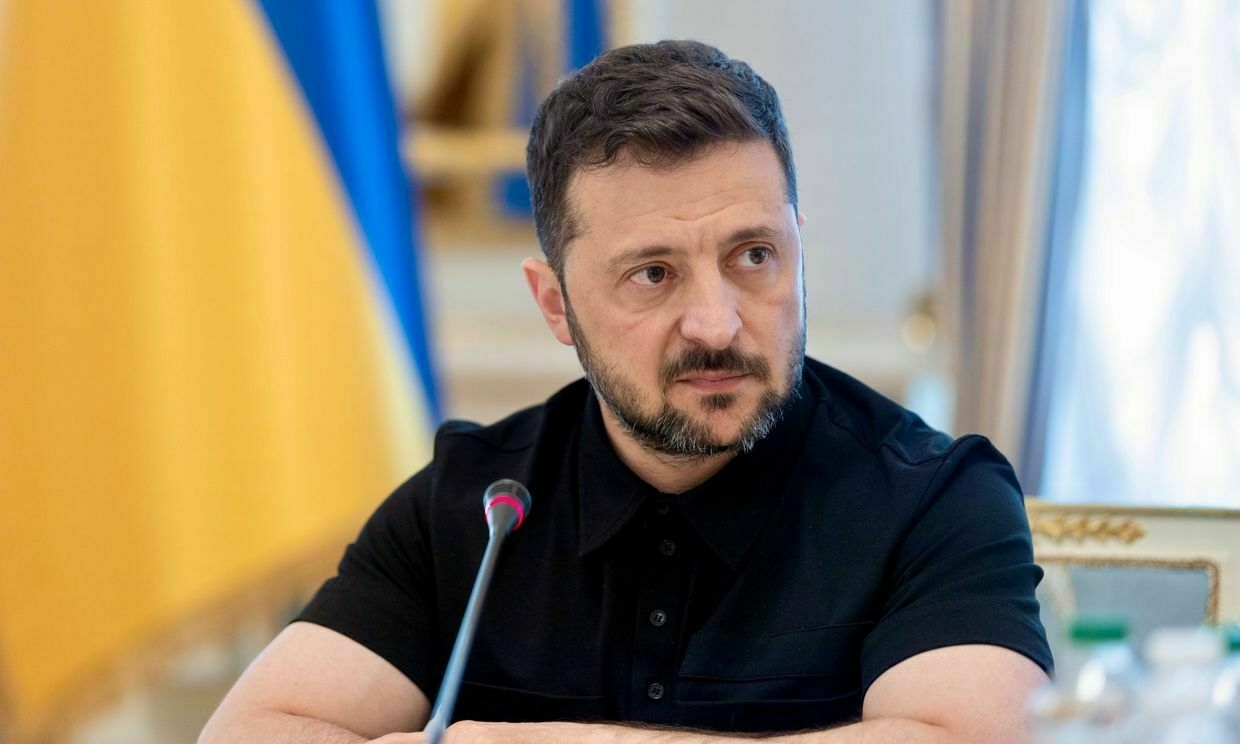
-
Ukraine planning diplomatic overhaul to win stronger global support against Russia
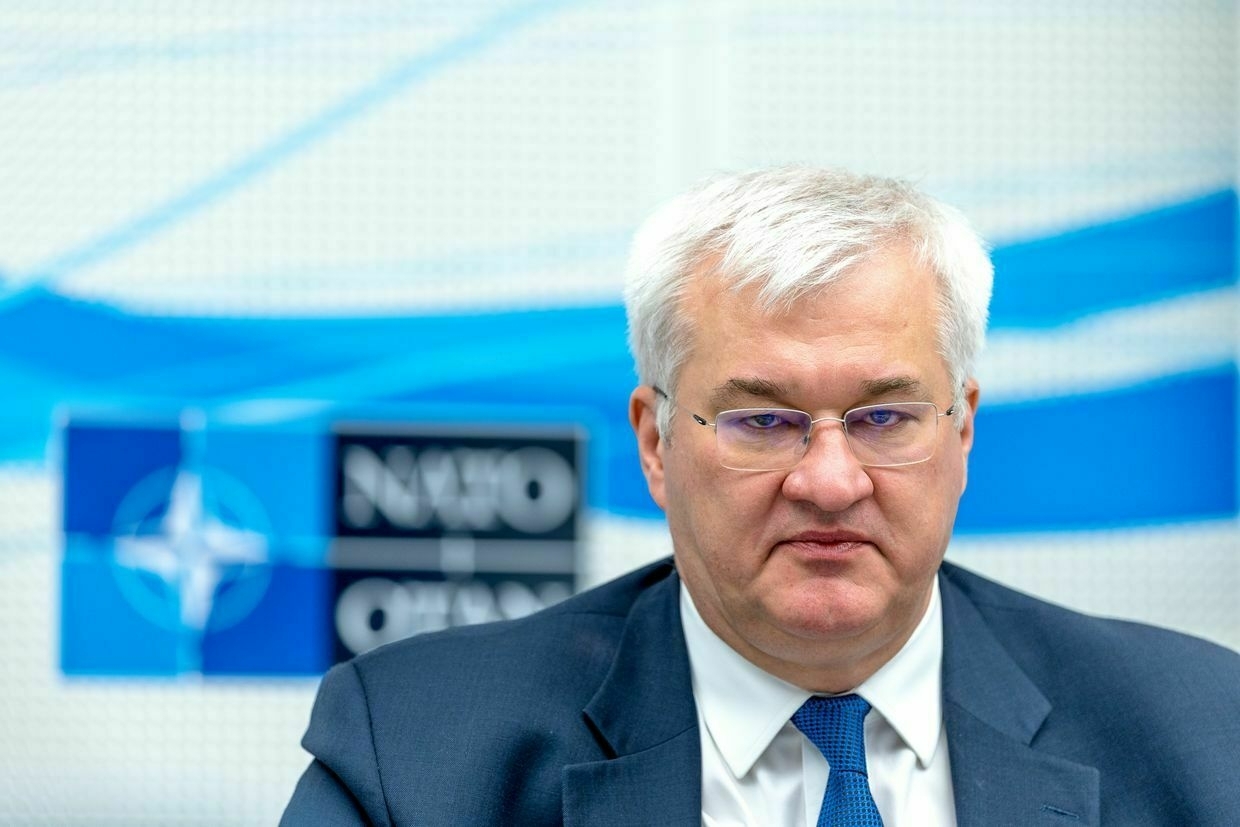
Kyiv is preparing to overhaul its Foreign Ministry and diplomatic corps in order to strengthen international support for Ukraine as the all-out war with Russia enters its fourth year, President Volodymyr Zelensky and Foreign Minister Andrii Sybiha said on June 21.
The announcement is part of “a number of new decisions” Ukraine has made in response to Russia’s stated aim to conquer all of Ukraine, Zelensky said in his evening address.
"(W)e will make changes to certain staff positions, including within the Ukrainian diplomatic corps and institutional management, to increase Ukraine’s potential both in relations with partners and in internal Ukrainian resilience," Zelensky said.
The president said that all of Ukraine’s ambassadors will hold a meeting and that results of the diplomatic transformation should be apparent in a month.
Ukraine’s Foreign Minister, Andrii Sybiha, confirmed that the president had already made decisions regarding some diplomatic personnel and that the ambassadors' meeting was scheduled for July.
“The geopolitical situation requires the diplomatic service to find new arguments and approaches adapted to realities,” Sybiha said in a television broadcast on June 21.
“Therefore, the president has already made certain personnel decisions regarding the heads of some foreign institutions, because the criterion is very simple: results."
According to Sybiha, expected results include military aid packages, humanitarian and financial assistance, and support for Ukrainians living abroad.
Sybiha described the coming month as a “month of full diplomatic mobilization to bring about a just and sustainable peace for Ukraine.”
The announcement comes after the disappointing outcome of the Group of Seven (G7) Leaders' Summit in Canada and before the June 24-25 NATO summit in The Hague, where Zelensky will once again advocate for international support for Ukraine.
At the G7 summit, Zelensky hoped to reset relations with Washington during a face-to-face meeting with U.S. President Donald Trump and potentially win an agreement to purchase weapons from the United States.
Trump’s abrupt departure from the summit quashed those hopes, and Zelensky himself left the conference early. The G7 summit produced no unified statement on Ukraine and Trump reportedly objected to other leaders' call for stronger sanctions against Russia.
Zelensky told G7 leaders that “diplomacy is now in a state of crisis."
‘My husband is free’ — Belarus opposition leader Siarhei Tsikhanouski freed after US envoy visits MinskSergei Tikhanovsky was sentenced to 18 years in prison on politically motivated charges in 2021.The Kyiv IndependentTim Zadorozhnyy
